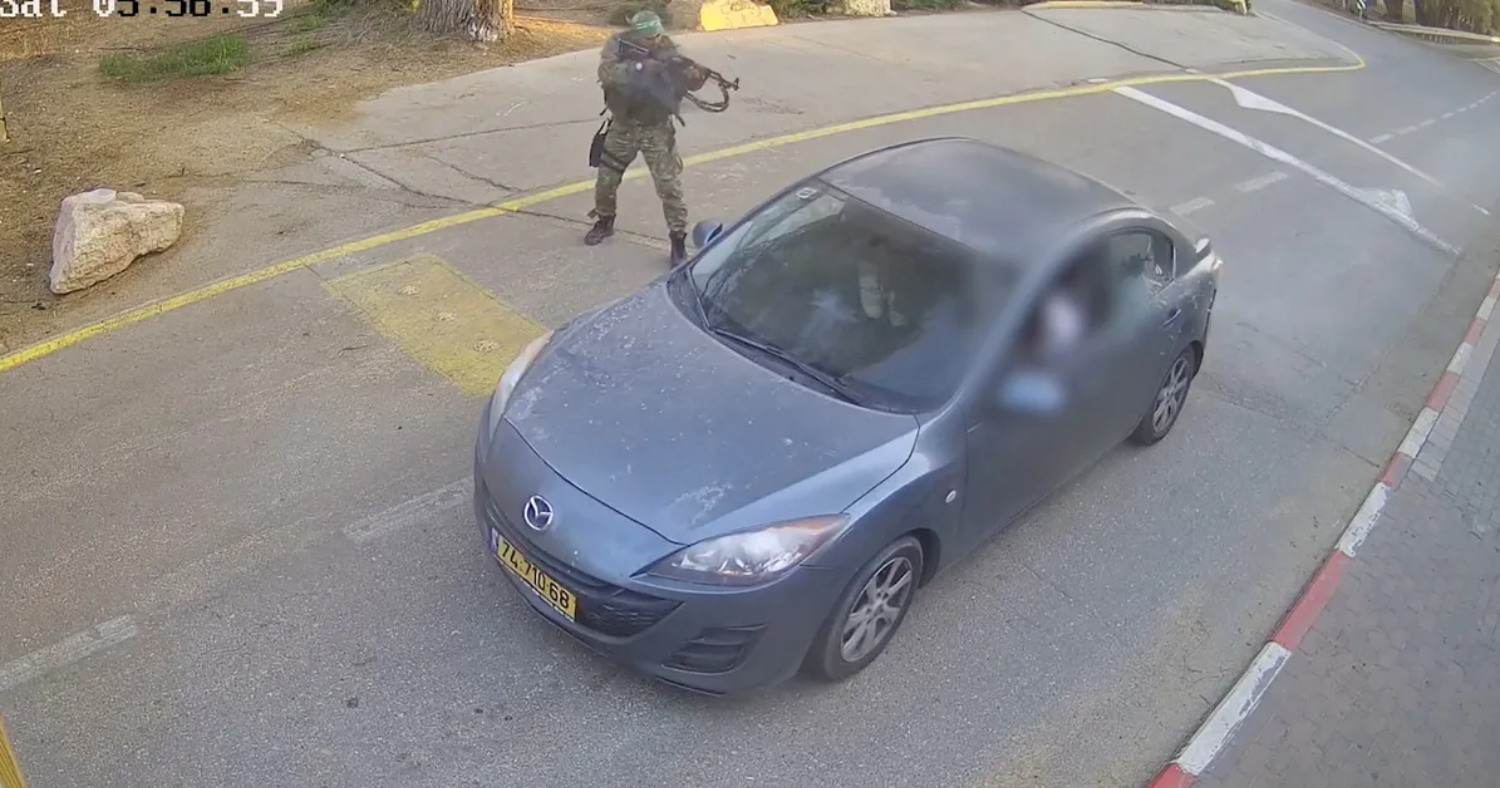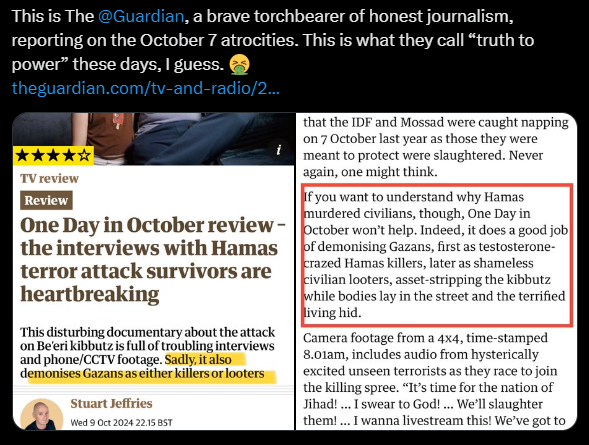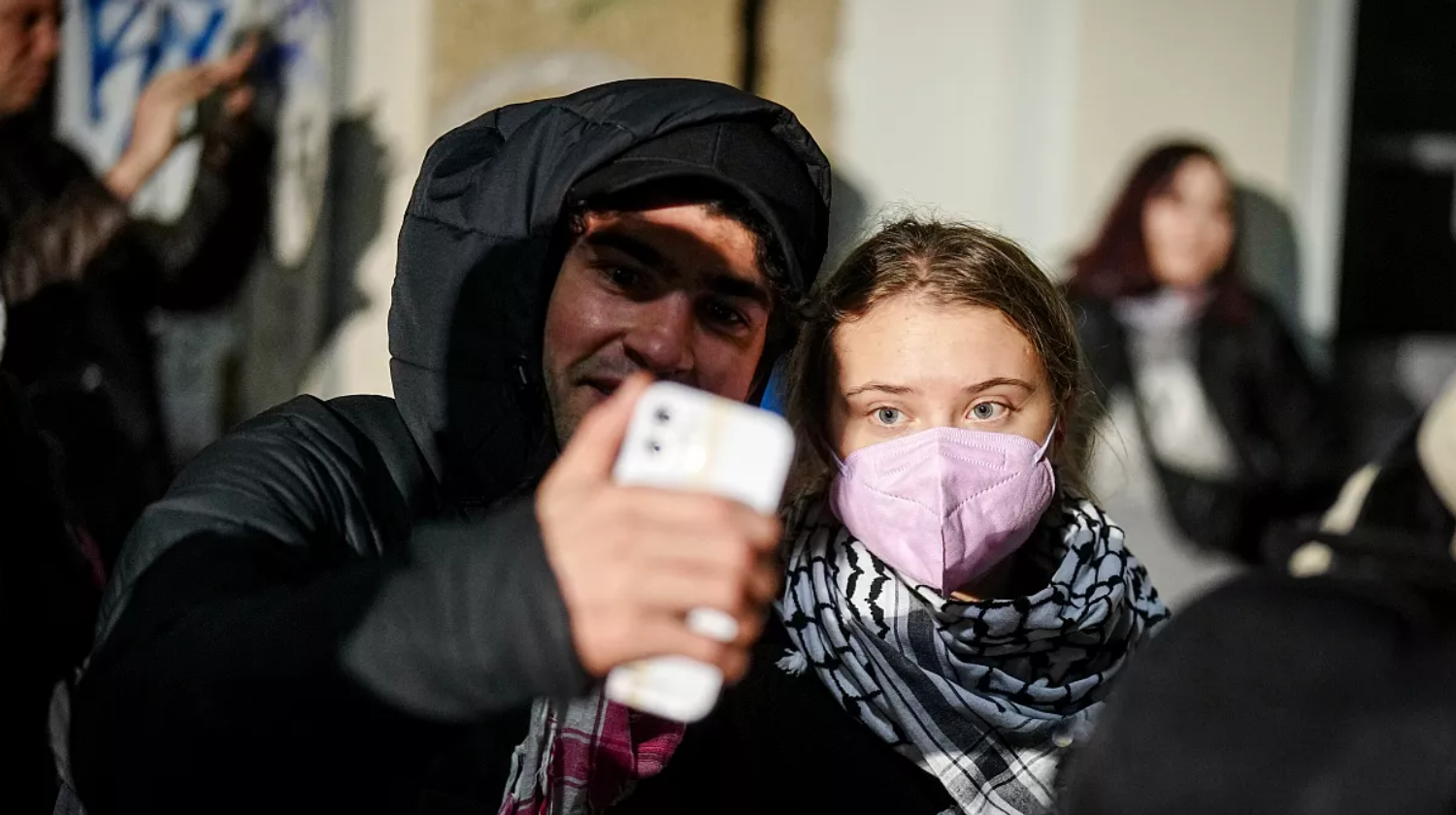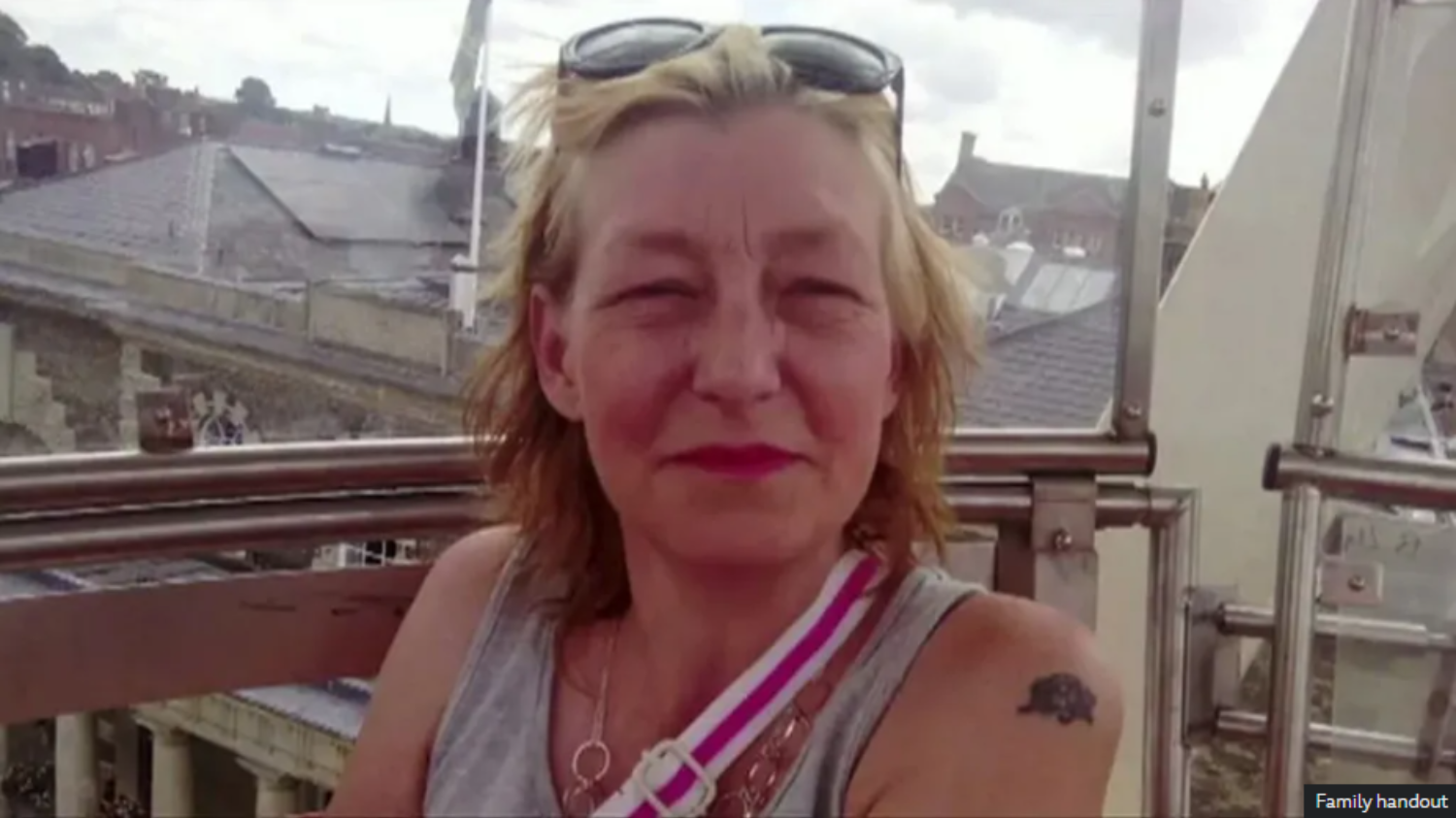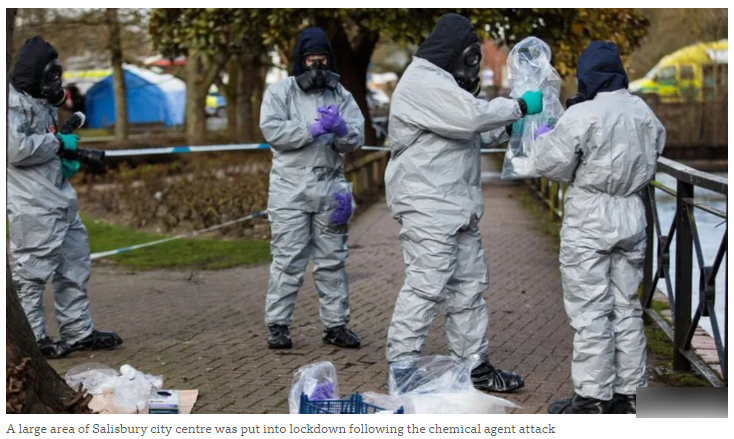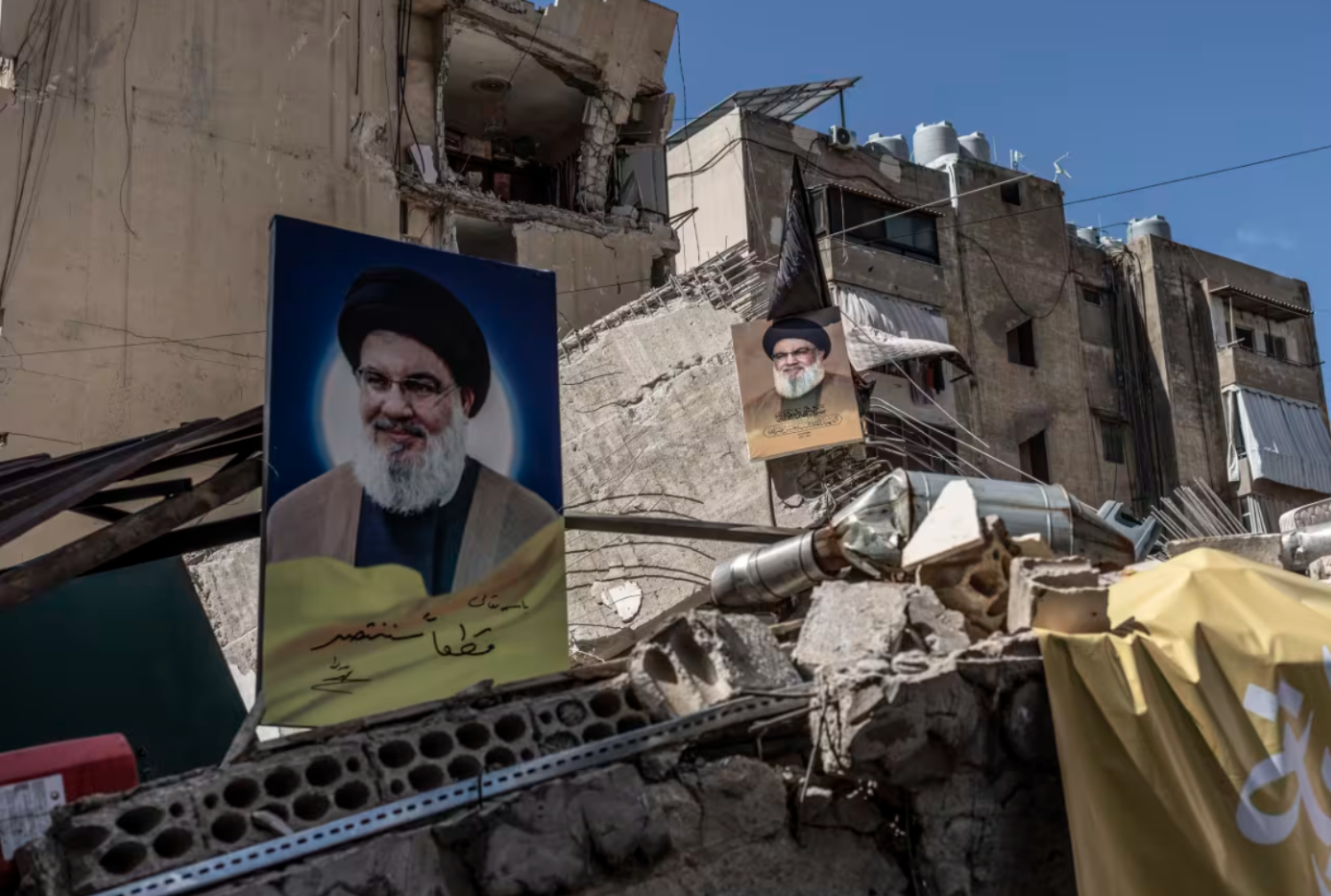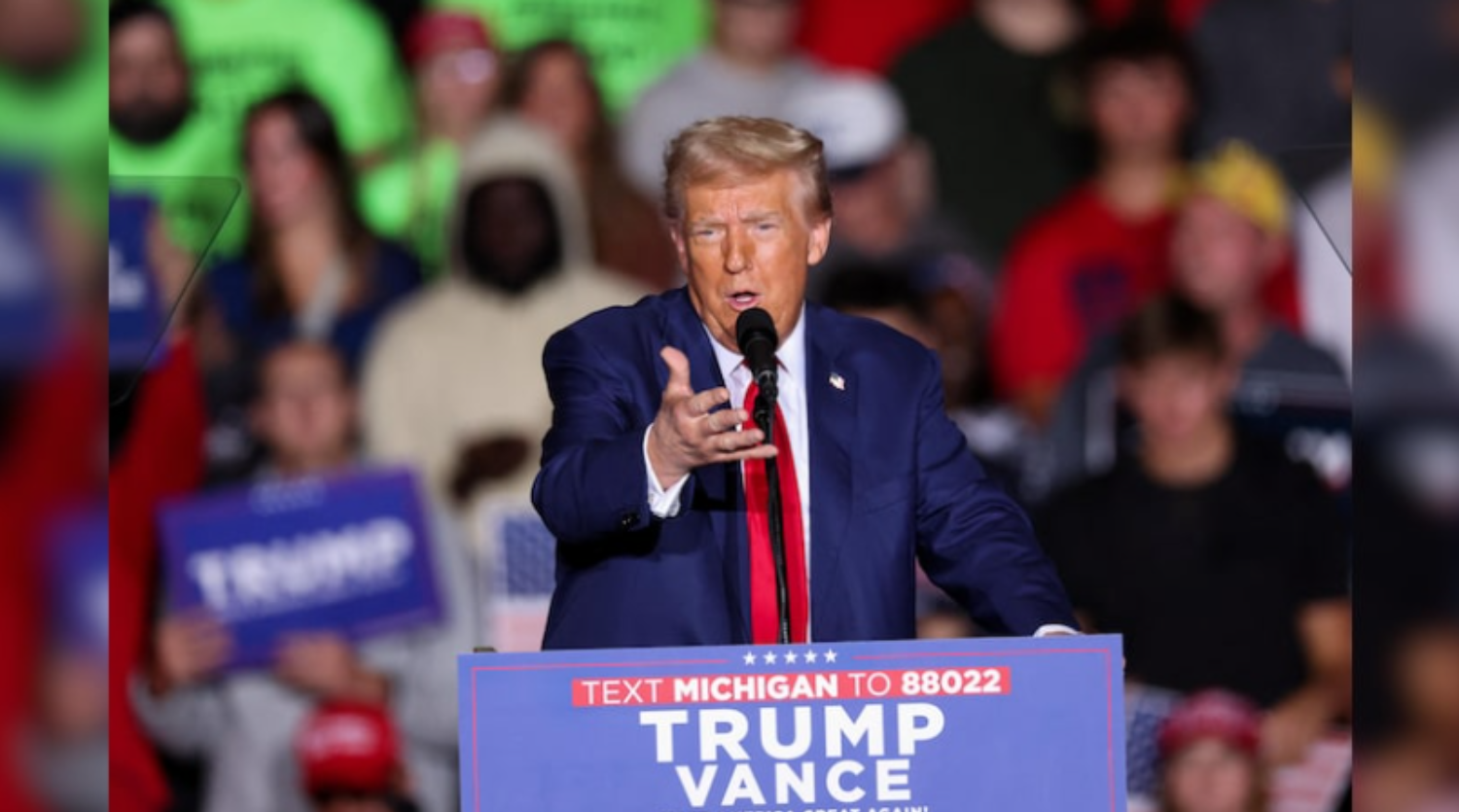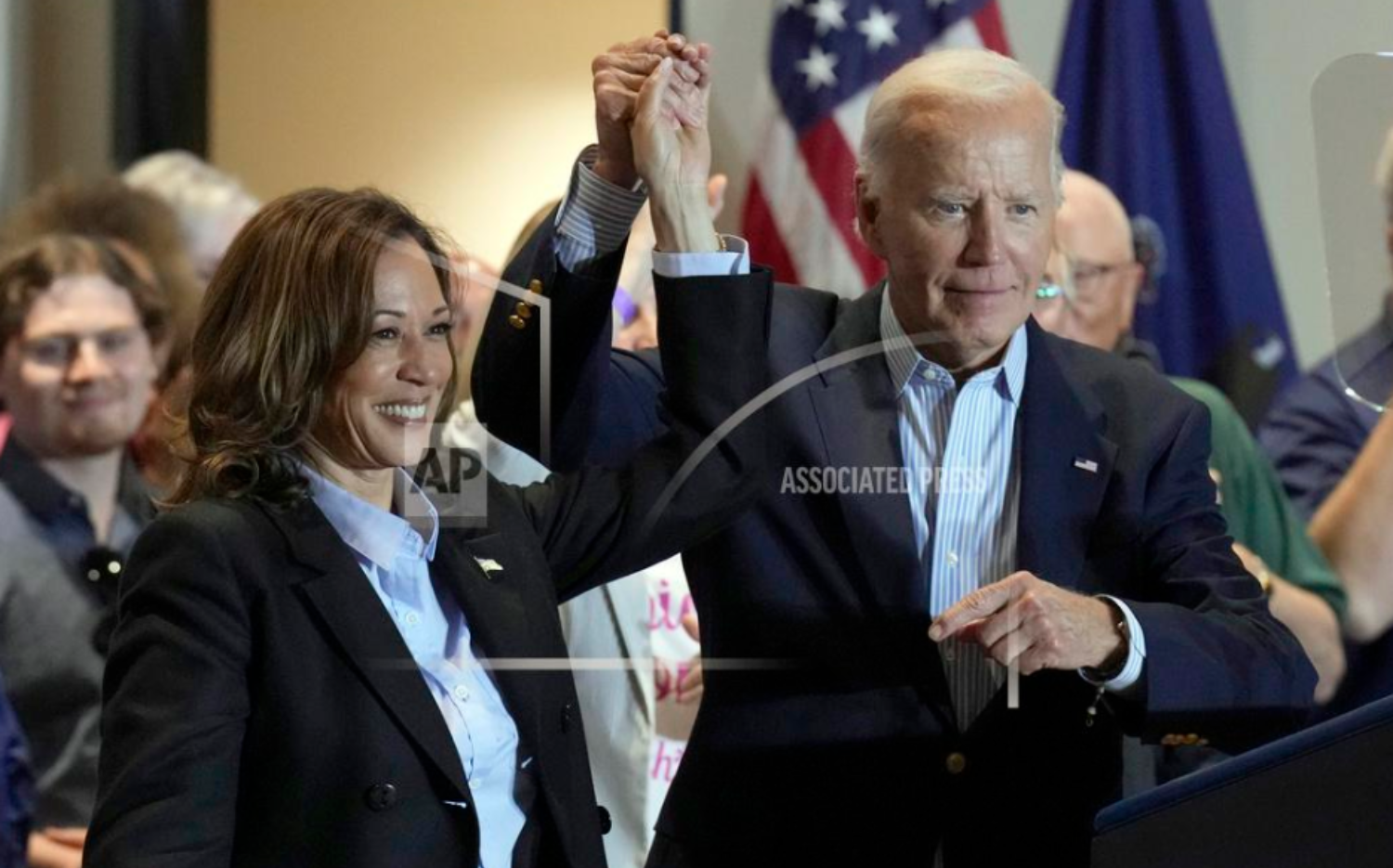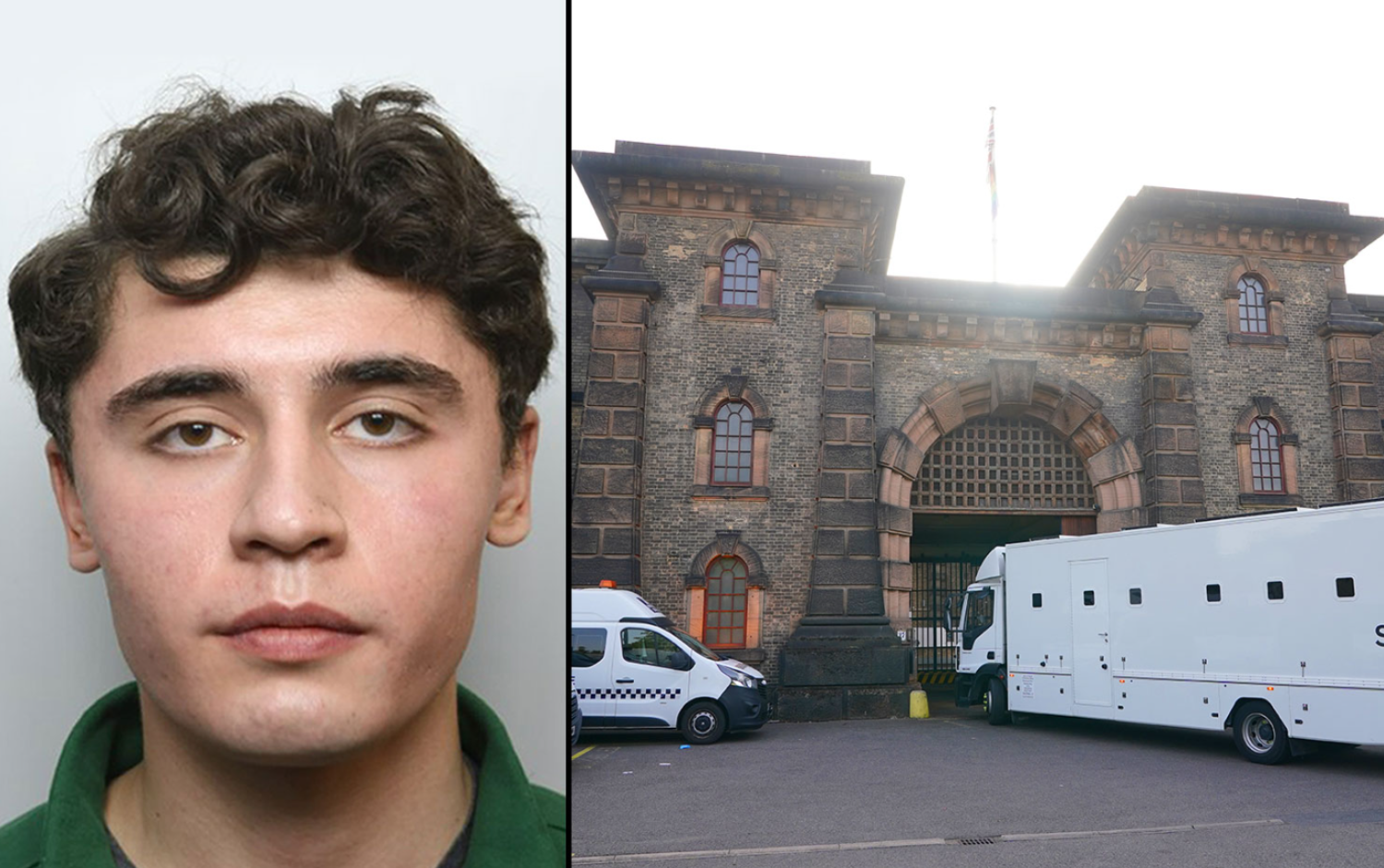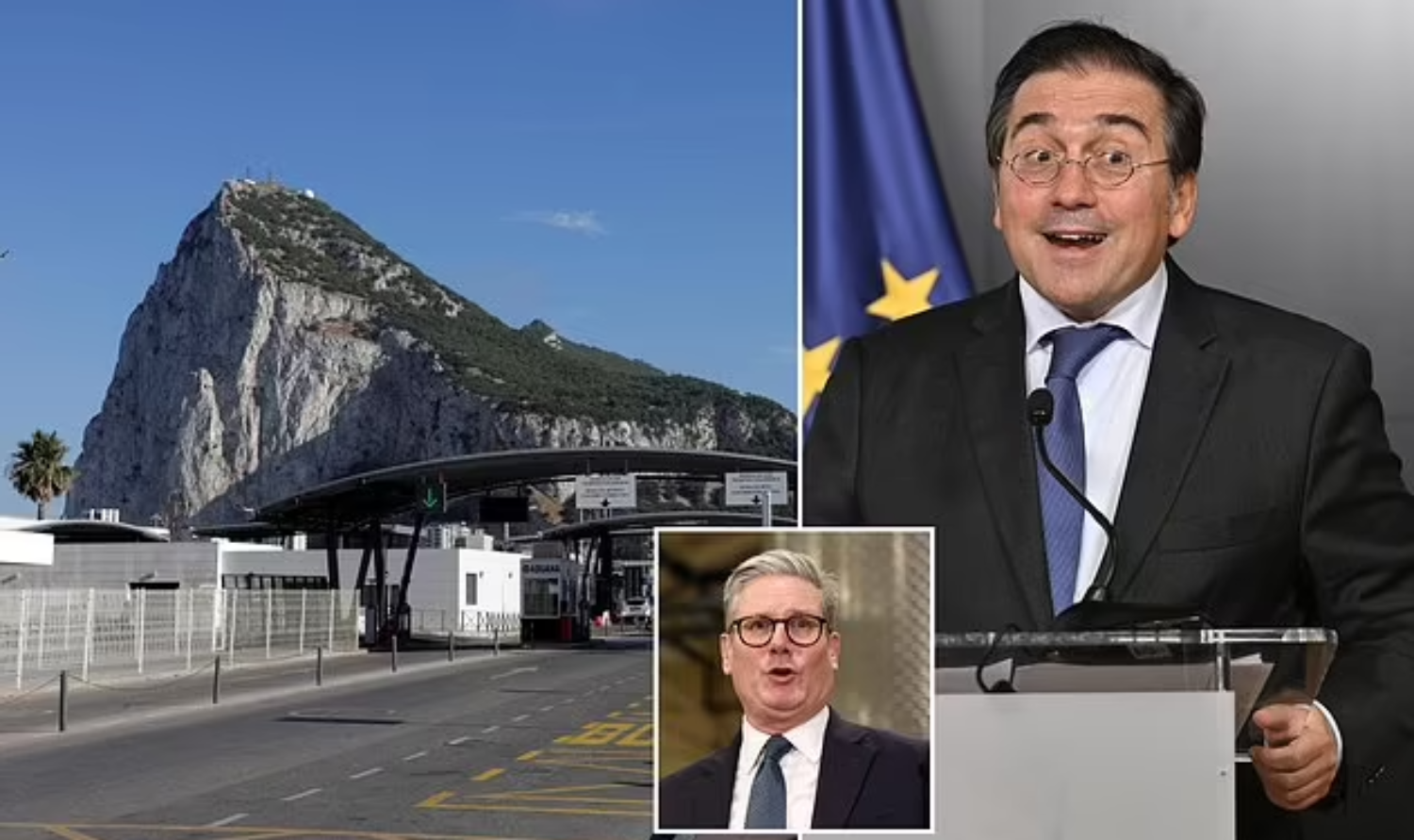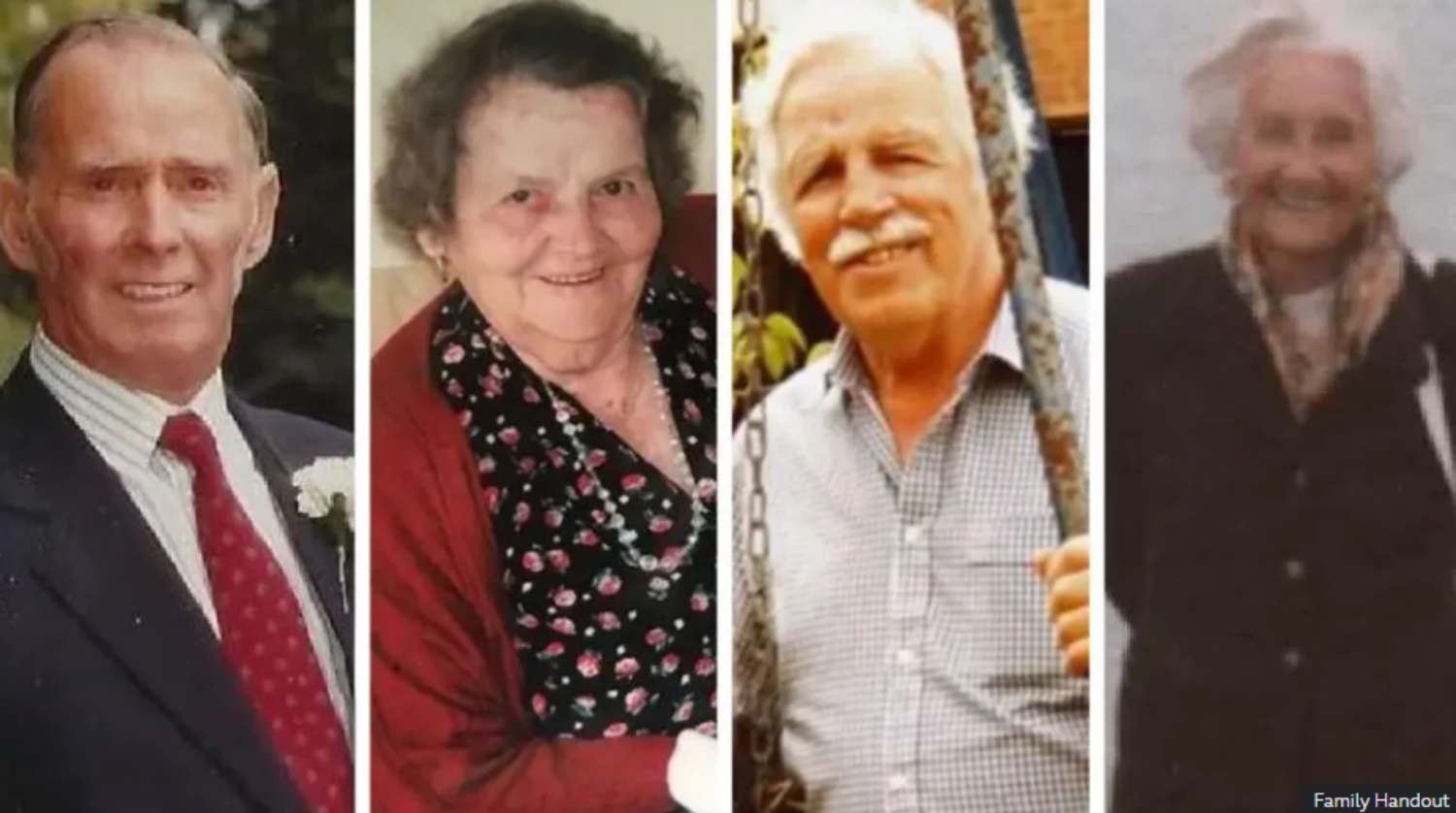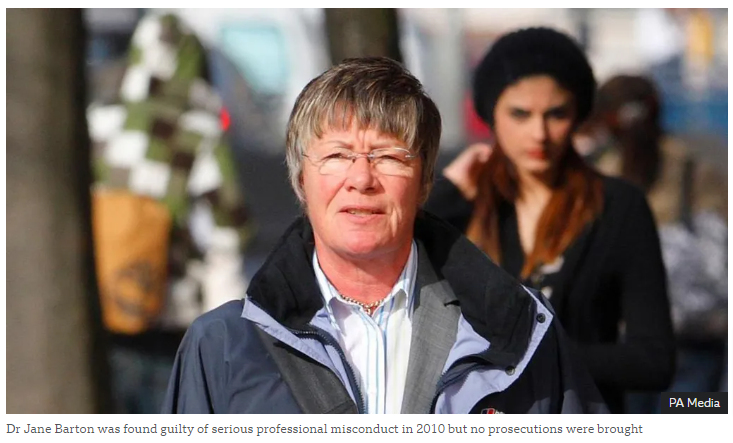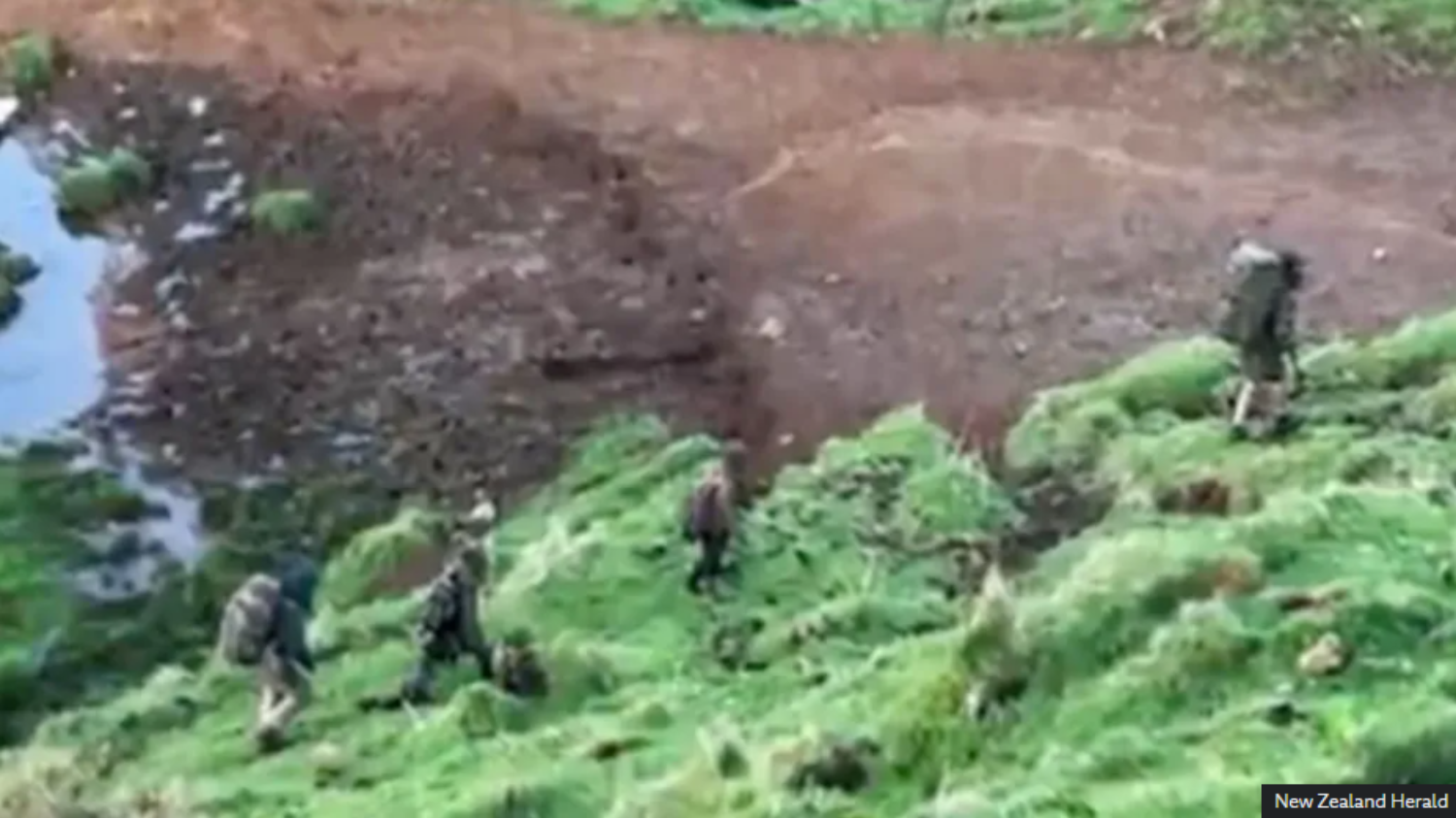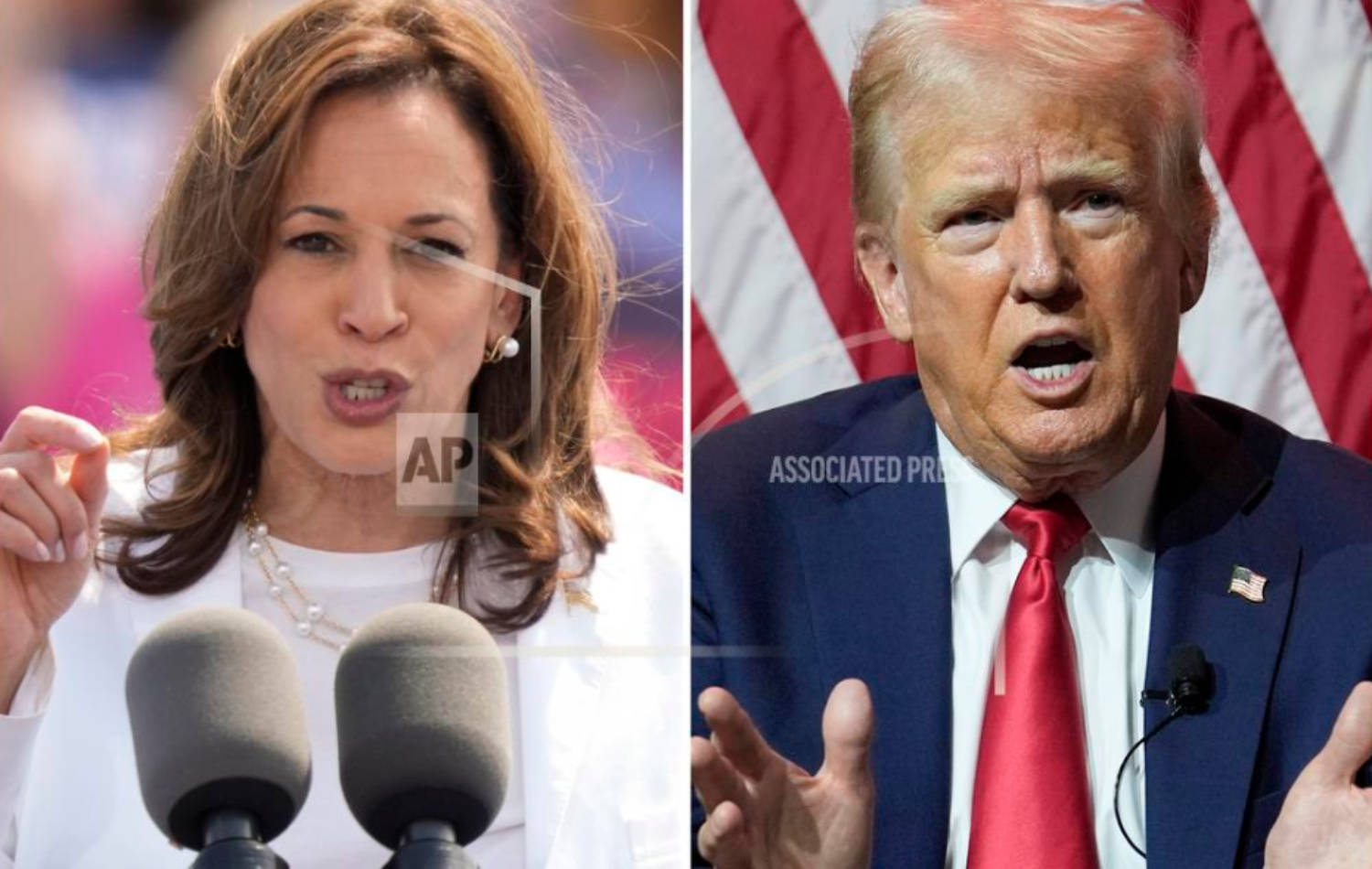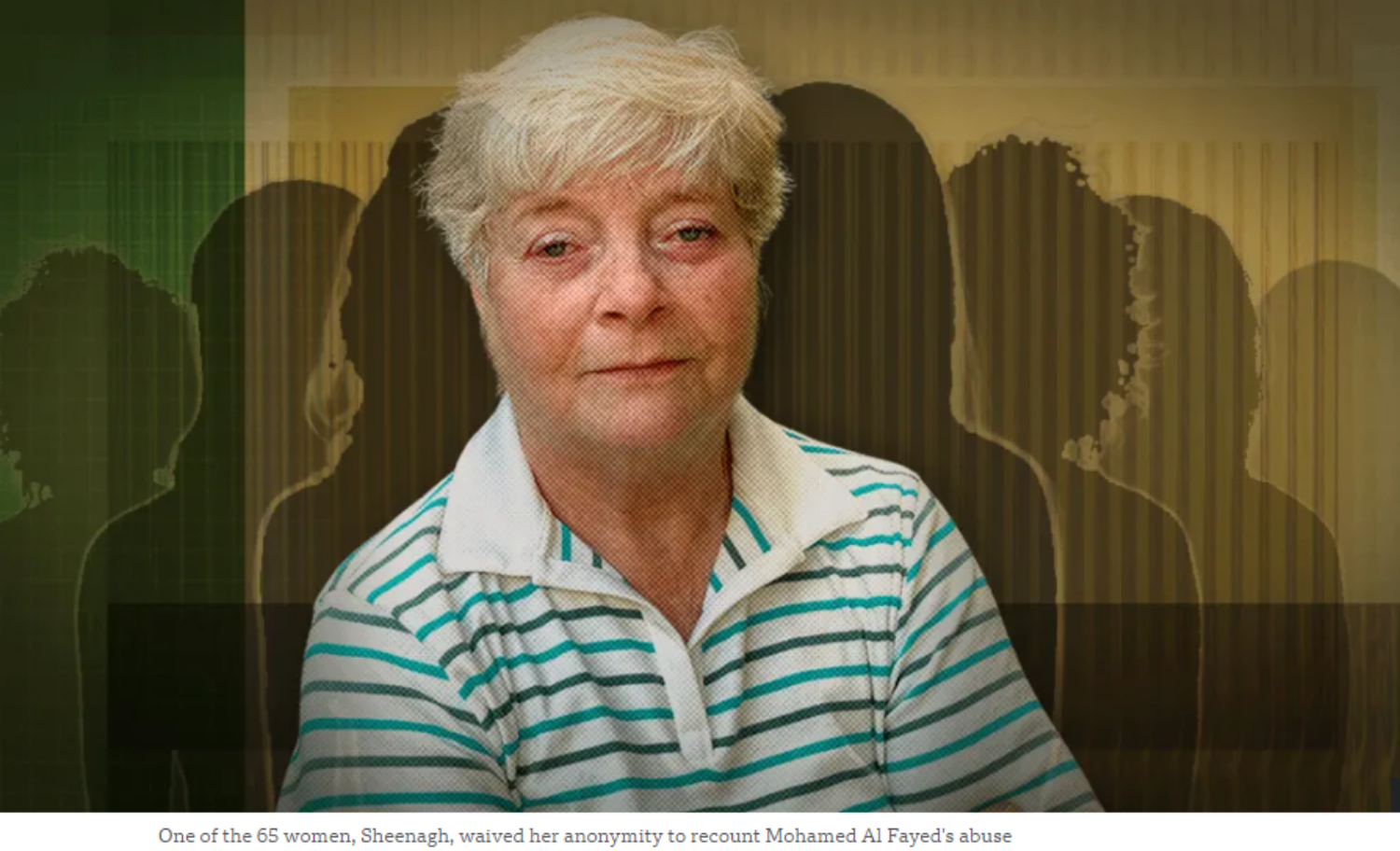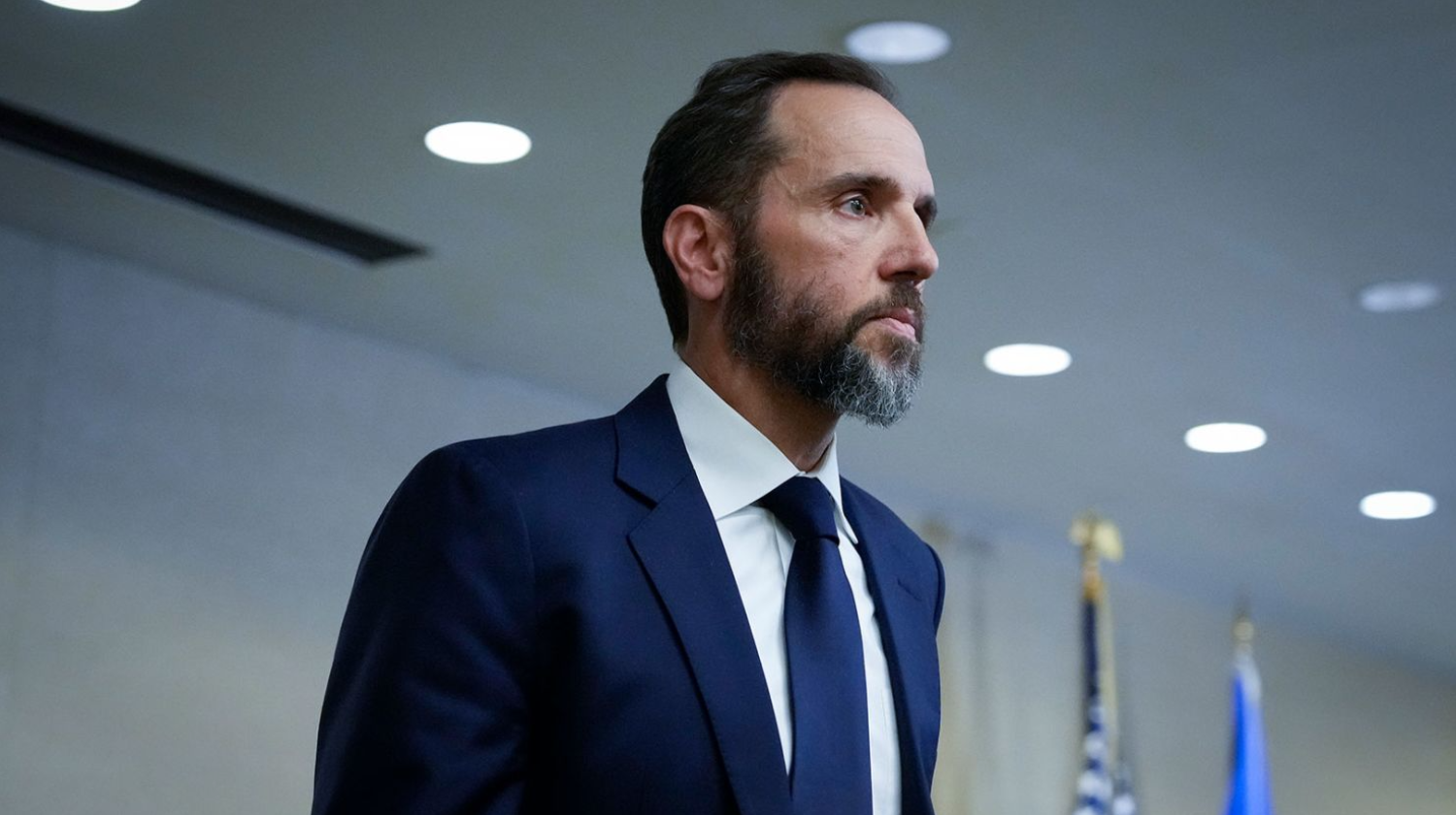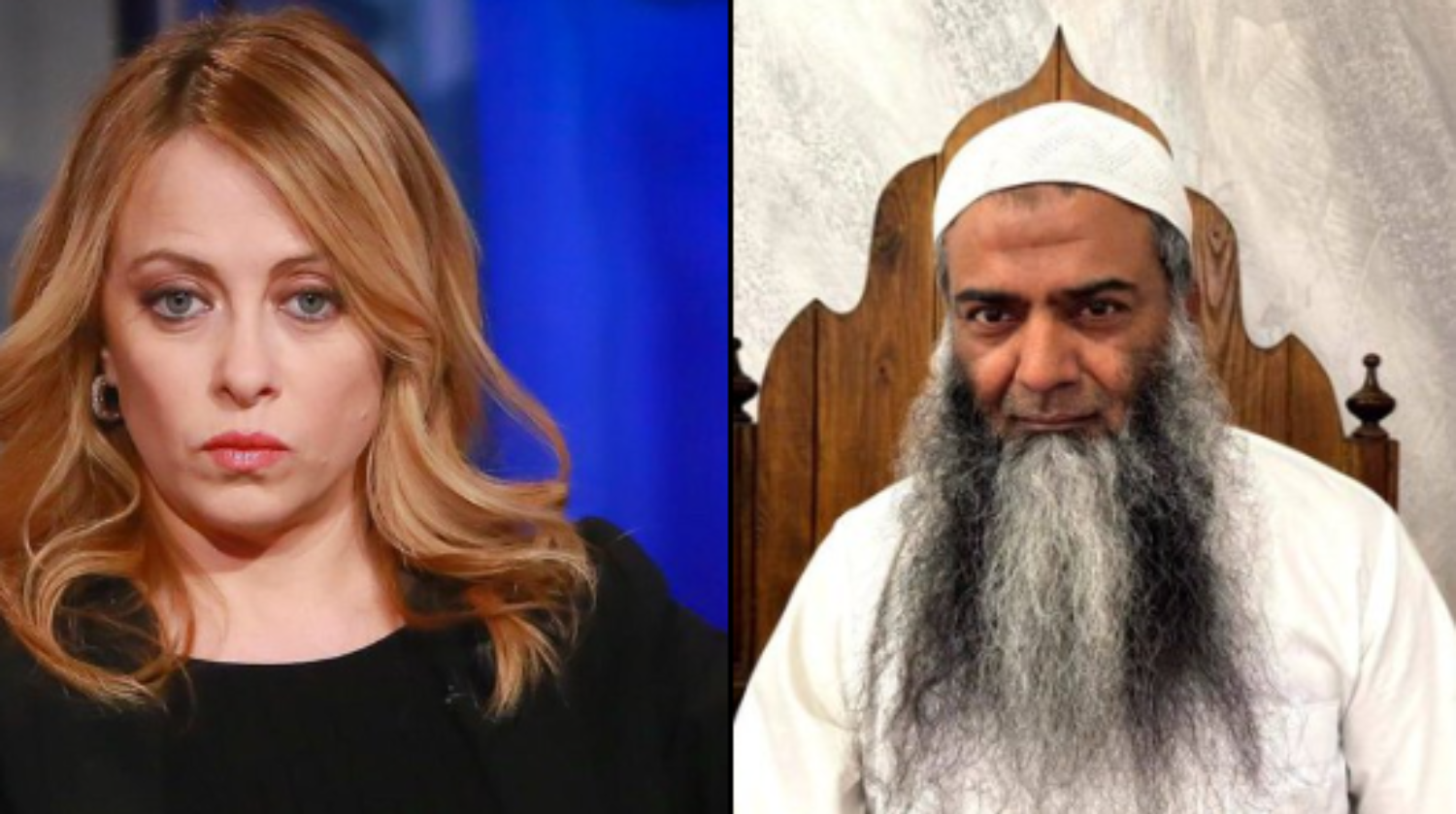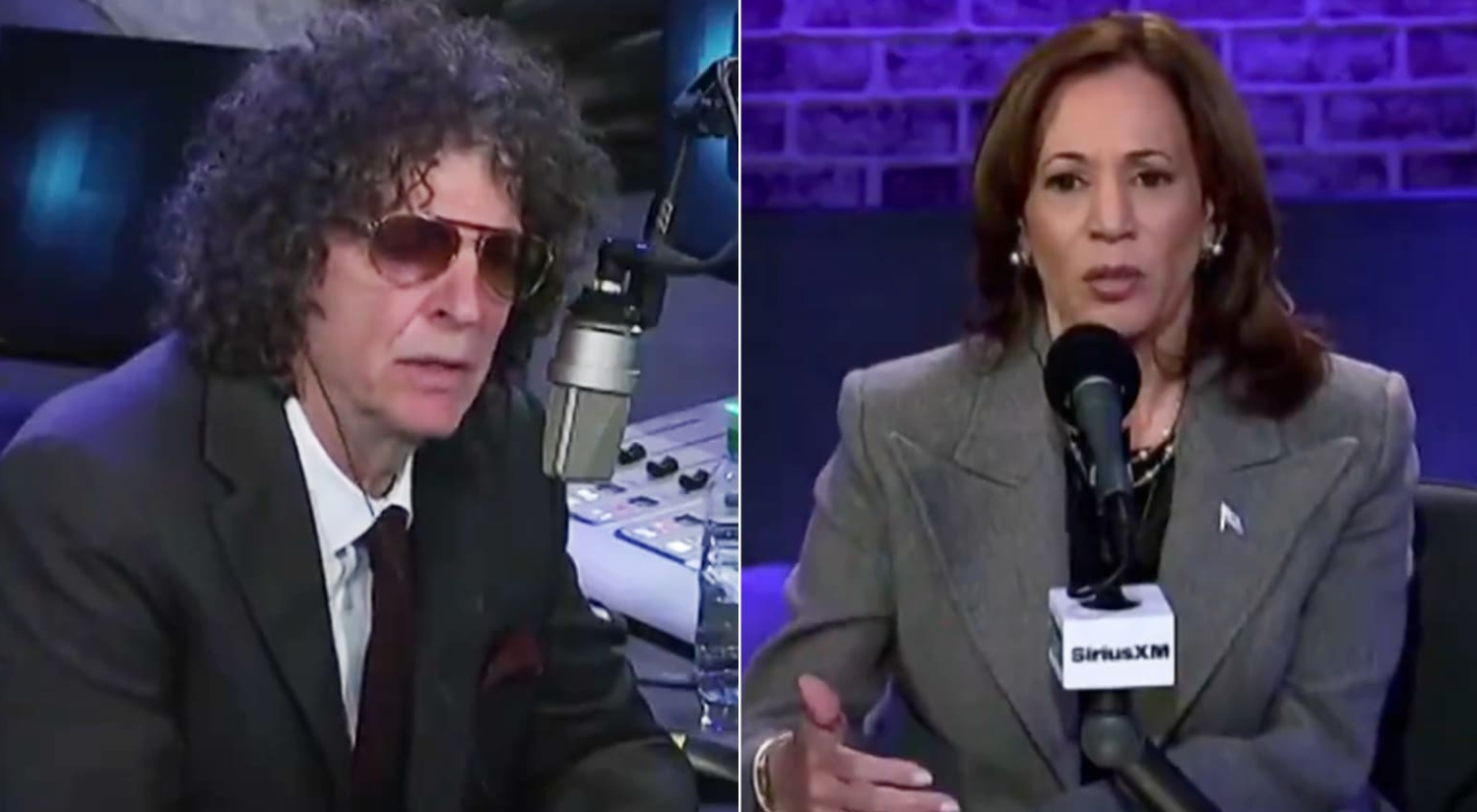-
Posts
10,735 -
Joined
-
Last visited
Content Type
Events
Forums
Downloads
Quizzes
Gallery
Blogs
Everything posted by Social Media
-
The Guardian has found itself at the center of an online controversy following the publication of a review of *One Day in October*, a documentary by Channel 4 covering the events and aftermath of the Hamas massacre on October 7. Written by feature writer Stuart Jeffries, the review sparked outrage, particularly over the suggestion that the film "demonises Gazans" as “Hamas killers.” Jeffries’s review noted that, despite the documentary's portrayal of "evident evil," it followed a narrative structure that encouraged viewers to identify with the Israeli victims, while casting Hamas as a faceless and generalized threat. This perspective, according to the Campaign Against Antisemitism, was "disgraceful," and many agreed that it trivialized the severity of the massacre. In response to the backlash, Guardian News & Media reaffirmed that the article had been taken down because it did not meet their editorial standards. Readers are awaiting further clarification from the publication regarding how such content made it to print in the first place. Based on a report from The Daily Telegraph | X 2024-10-12
-
Greta Thunberg is facing calls for her to be banned from entering Germany amid a decision by local police to classify her as a “violent participant” in political demonstrations. Thunberg had accepted an invitation to a pro-Palestinian protest camp organized at the University of Dortmund. However, the event was swiftly canceled after authorities expressed concerns that her presence would attract a larger crowd than initially expected. German police ordered the event to be dismantled, prompting Thunberg to respond with a video on Instagram, where she criticized the German authorities for "silencing activists." Wearing a traditional Palestinian keffiyeh, she stated, "Germany threatens them (activists) when they speak out against the genocide and occupation in Palestine." The event organizers took to social media to condemn the cancellation, claiming it was unjust and announcing their intention to file an appeal. According to them, they were given little time to disassemble the protest camp after the police intervened. Earlier in the week, Thunberg attended another pro-Palestinian protest in Berlin, marking the anniversary of the October 7 attacks. The protest saw tensions rise, with four demonstrators being detained after they set off pyrotechnics and burned car tires. Thunberg expressed her disapproval of the police's actions on social media, stating that she "didn't have words" to describe how the German police handled what she referred to as "peaceful protesters." Thunberg’s involvement in pro-Palestinian protests has led to several confrontations with law enforcement. In early September, she was forcibly removed by police during a demonstration in Stockholm. More recently, Thunberg was detained by Belgian authorities after participating in a protest against European Union subsidies for fossil fuels. As the debate surrounding Thunberg’s activism continues, the call for her to be banned from Germany adds to the growing tension over her participation in politically charged demonstrations. Based on a report from Euro News | X 2024-10-12
-
Former Prime Minister Theresa May expressed doubts that justice will ever be achieved for those affected by the Salisbury Novichok attack. Speaking about the 2018 poisoning that claimed the life of Wiltshire resident Dawn Sturgess, she admitted that it is “highly unlikely” that those responsible will face trial. Instead, May hopes that Sturgess’ family will find solace in the forthcoming independent inquiry into her death. “I would hope by the end of it the family and friends of Dawn Sturgess feel it has got to the truth,” she stated during an interview for a new BBC podcast on the Salisbury Poisonings, which covers the inquiry. Ms. Sturgess, a 44-year-old mother of three, tragically died in July 2018 after coming into contact with Novichok, a deadly Russian nerve agent. It is believed that the chemical weapon had been carelessly discarded by Russian agents who were targeting former Russian spy Sergei Skripal in March 2018. In addition to Skripal, his daughter Yulia Skripal and Wiltshire Police officer Det Sgt Nick Bailey were also exposed to the toxin, though they later recovered. Charlie Rowley, Sturgess’s partner, unwittingly gave her the poison after finding the perfume bottle containing the Novichok, unaware of its deadly contents. May, who was the prime minister at the time, expressed deep sadness over the incident. "I felt huge sadness about Ms. Sturgess' death," she said, while also pointing out that the number of potential victims could have been much higher, given the quantity of the nerve agent discovered. She described the Russian agents’ actions as "utter recklessness." Within a week of the Skripal attack, the UK government, led by May, publicly accused the Russian government of involvement. This swift response led to the expulsion of Russian intelligence officers by the UK and numerous other countries. “We had to be certain of our ground,” May explained, recalling the tense moment she stood in the House of Commons to formally accuse Russia. "It's why we took our time" to gather the facts and avoid “rash declarations.” She acknowledged the challenge of balancing the public’s desire for immediate information with the need for caution. Reflecting on the broader context of Russian-linked poisonings, May also expressed regret that the UK had not responded more forcefully to the 2006 murder of Alexander Litvinenko, another former Russian spy, who was killed in London using radioactive polonium-210. A public inquiry concluded that Russian President Vladimir Putin had likely approved Litvinenko's assassination. “I think we probably should have taken a stronger response to that at the time and given a clearer message to Russia," she admitted. The public inquiry into Dawn Sturgess’s death, which was converted from an inquest in 2021 to allow for classified evidence, is set to begin on October 14, more than six years after the incident. The inquiry aims to uncover the circumstances surrounding her death but cannot assign guilt or lead to a trial. While UK counter-terrorism police identified two Russian nationals, Alexander Petrov and Ruslan Boshirov, as suspects in September 2018, and later named a third suspect, Sergey Fedotov, all three remain in Russia. Despite the international arrest warrants issued against them, they are unlikely to face justice, as Russia’s constitution prevents the extradition of its citizens. Russia has continuously denied involvement, with its foreign ministry dismissing the inquiry as a “circus.” As the inquiry proceeds, May’s hope is that while justice may remain out of reach, the truth surrounding Ms. Sturgess’s tragic death will provide some measure of closure to her loved ones. Based on a report from BBC 2024-10-12
-
The Biden administration is taking advantage of the current Israeli offensive against Hezbollah to push for a new Lebanese president, hoping to curb the militant group’s long-standing political dominance. According to U.S. and Arab officials, this move marks an opportunity to address Lebanon’s political stalemate, which has left the country without a president since Michel Aoun’s term ended in 2022. Secretary of State Antony Blinken has reached out to leaders in Qatar, Egypt, and Saudi Arabia, urging their support for electing a new Lebanese president. The push is part of a broader U.S. initiative to weaken Hezbollah's influence in Lebanon, a group that has entrenched itself not only as a militant organization but also as a powerful political party. Amos Hochstein, a senior White House official, has emphasized to Arab officials that the Israeli strikes on Hezbollah provide a chance to potentially resolve Lebanon's political deadlock. “We want to see Lebanon break the grip that Hezbollah has had on the country—more than a grip, break the stranglehold that Hezbollah has had on the country and remove Hezbollah veto over a president,” State Department spokesman Matt Miller said. The U.S. effort to sideline Hezbollah comes after years of frustration over Lebanon's ineffective government, where political reforms have been stymied by entrenched elites. Lebanon’s power-sharing system, established during the French occupation after World War I, divides power among its major religious groups—Sunni Muslims, Shia Muslims, Christians, and Druze. Despite previous U.S.-backed efforts, the country's fractured political landscape has hindered meaningful change. Saudi Arabia, which historically played a significant role in Lebanon’s political and economic affairs, has backed the U.S. initiative. The plan’s success, however, depends on key Lebanese figures, including Prime Minister Najib Mikati and Parliament Speaker Nabih Berri. Both have voiced support for electing a new president but remain closely tied to Hezbollah, especially in the context of cease-fire negotiations. While the U.S. sees a new president as essential to forming a stable and empowered government, Hezbollah’s leadership opposes any political shift amid ongoing conflict. Naim Qassem, Hezbollah’s Deputy Secretary-General, rejected calls for a political rearrangement while the war with Israel continues. Electing a new president is a complex process in Lebanon, where the president is chosen by a 128-member parliament. Without Hezbollah’s support, it remains unclear how political factions can unite to elect a leader. Several Arab nations, including Egypt and Qatar, have expressed skepticism about the U.S. approach. They argue that attempting to sideline Hezbollah, particularly during a time of crisis, could reignite sectarian violence in a country still scarred by its civil war, which ended in 1990. Egypt, in particular, has voiced concern that intervening in Lebanon’s political affairs now could lead to the kind of internecine fighting that devastated the country during the civil war. Lebanese political analysts warn that any leader seen as rising to power due to Israeli and U.S. actions risks being discredited. Robert Ford, a former U.S. ambassador to Syria and Algeria, noted, “The more a new Lebanese president is seen to have come to office on the coattails of Israeli military actions with American support, the more discredited I think he will be among many Lebanese.” The absence of a president has worsened Lebanon's economic crisis, which the World Bank describes as one of the worst globally in the past 150 years. Since 2019, Lebanon's currency has plummeted by 97% against the U.S. dollar, leaving public sector salaries nearly worthless and hollowing out government institutions. Parliament hasn’t convened since May, and the caretaker government has been unable to address the country’s economic collapse, which has plunged millions into poverty. In the midst of the current war, Lebanon remains in a political and economic vacuum, with Hezbollah maintaining greater strength than the national army despite limited U.S. military aid. Based on a report from WSJ 2024-10-12
-
In the final stretch of his 2024 presidential campaign, Donald Trump has made a bold new promise to eliminate US income taxes for Americans living abroad. This latest proposal joins a growing list of plans aimed at cutting personal tax bills. Trump has also floated the idea of exempting tipped wages, overtime pay, and Social Security benefits from taxation, all part of his broader strategy to lessen the tax burden on Americans. In a statement aimed at American expatriates, Trump declared, "I support ENDING the Double Taxation of overseas Americans!" He added, "Let’s put America First, together. Register to Vote, and vote Republican." Currently, US citizens, no matter where they reside in the world, must file tax information with the Internal Revenue Service (IRS). Some expatriates are required to pay US taxes in addition to the levies they pay in the country where they live. Trump's plan could simplify these obligations for the approximately 9 million Americans the State Department estimates live abroad. The tax system, as it stands, does not mean all expats owe money to the IRS. The tax code provides credits to offset federal taxes owed, and individuals earning less than $126,500 are not required to pay any US taxes. However, advocates for changing the taxation of Americans abroad point out that these IRS rules contribute to a trend where a few thousand people renounce their US citizenship annually. It is typically higher-earning expatriates who face the most significant tax bills under current rules. If implemented, Trump’s plan could potentially allow wealthier Americans to relocate to low-tax countries and avoid paying US taxes altogether. The Wall Street Journal was the first to report Trump’s proposal. While the plan would reduce paperwork and likely lower tax bills for Americans abroad, it would require approval from Congress. If successful, it could mark a significant shift in how the US handles expatriate taxation. This pledge to eliminate taxes for Americans living overseas is just one piece of Trump’s broader tax-cutting agenda. Throughout his campaign, he has championed efforts to reduce household and corporate tax burdens. Trump has promised to push for a renewal of the 2017 tax overhaul, much of which is set to expire at the end of next year. These sweeping tax proposals, if implemented, could amount to more than $10 trillion over a decade, according to estimates from the Committee for a Responsible Federal Budget. While Trump’s plan offers relief for Americans abroad, it contrasts with his approach to US-based businesses. He has called for lowering the corporate tax rate to 15 percent from the current 21 percent, but only for companies that manufacture inside the US. Companies that operate overseas, on the other hand, could face higher tax rates and tariffs if they attempt to sell their products to American consumers. Widespread tariffs are a core component of Trump’s economic strategy. Last month, he threatened to impose steep import duties on Deere & Co., a major US farm machinery manufacturer, if the company moved its manufacturing operations to Mexico. As the 2024 election approaches, Trump’s tax-cutting promises continue to grow, appealing to various groups, from expatriates to domestic manufacturers. Whether these proposals will come to fruition, however, depends on the outcome of the election and the willingness of Congress to support such sweeping changes to the US tax system. Based on a report from Business Standard 2024-10-11
- 64 replies
-
- 16
-

-

-

-

-
Kamala Harris often tries to distance herself from President Joe Biden with a simple statement: "I am not Joe Biden." Yet, when it comes to explaining how she would be different if she were to assume the presidency, Harris has been careful not to delve into specifics. This approach reflects her complex position as both a candidate seeking change and a vice president loyal to the administration she serves. For over three years, Harris has prioritized loyalty to Biden, even when it may have affected her own political standing. Now, as she runs for president with the slogan "A New Way Forward," she treads cautiously, avoiding direct criticism of the president or the administration. According to her allies, this strategy is a balancing act—she seeks to maintain her loyalty while appealing to voters eager for change. Still, she has backed a few economic and border policy proposals that her team crafted with the intention of setting her apart from Biden. In a recent appearance on ABC’s "The View," Harris was asked if she would have done anything differently than Biden during their time in office. Her initial response was, "There is not a thing that comes to mind." However, by the end of the interview, she did mention that she would appoint a Republican to her cabinet if elected president. Later, on CBS’s "The Late Show with Stephen Colbert," when asked a similar question, Harris focused more on distinguishing herself from former President Donald Trump, stating, "It’s important to say with 28 days to go, I’m not Donald Trump." Trump, seizing on her earlier comments, played a clip of Harris at a rally in Scranton, Pennsylvania, mocking the vice president and criticizing the Biden administration’s handling of issues such as the chaotic withdrawal from Afghanistan, the southern border, and inflation. "Can you believe our country is being run by these people?" Trump asked, questioning Harris's suitability for leadership. Despite the Republican efforts to lump Harris together with Biden, she has managed to maintain a slight edge over Trump in recent polls. According to a New York Times/Siena College survey, Harris led Trump by a narrow margin of 46% to 44% when voters were asked which candidate represented change. She continues to perform slightly better than Biden in most national polls and remains competitive in key swing states. However, some Democrats were surprised by Harris's reluctance to clearly differentiate herself from Biden during her media blitz this week. Evan Roth Smith, a Democratic pollster, expressed concern, stating, "They were a missed opportunity to do something voters will reward." Smith's polling found that voters responded best to messages that emphasized a break from Biden on key issues, while portraying Harris as a continuation of Biden’s policies was less successful. "She doesn’t need to stab the president in the back," he said, "just pick a specific issue that is of high importance to voters and draw a really clear distinction." Harris's campaign has introduced incremental policy changes to position her as more business-friendly and tougher on immigration than Biden. For example, she proposed a less aggressive increase in the capital gains tax compared to Biden’s plan. Additionally, during a visit to the border, she suggested that she would take a firmer stance than Biden on maintaining restrictions that prevent migrants who cross illegally from applying for asylum. Despite these shifts, when directly asked about Biden, Harris has avoided emphasizing these differences, instead opting to speak broadly about her vision for economic leadership and the next generation of political leadership. While Harris's background as the daughter of immigrants and her potential to become the first female president offer a natural contrast to Biden, some Democrats believe she could afford to create more space between herself and the current administration. On foreign policy, particularly regarding the intensifying conflict in the Middle East, Harris has been hesitant to criticize Israeli Prime Minister Benjamin Netanyahu, even though this might resonate with certain Democratic voters. Abbas Alawieh, a co-founder of the Uncommitted movement, remarked, "I’ve been surprised by just how allergic to even inching in the direction of antiwar voters Vice President Harris has been." Alawieh believes that a stronger stance against Netanyahu could actually mobilize Democratic voters, without costing Harris any significant support. "I don’t know that being more critical of Netanyahu would cost a single Democratic vote," he said. "It might gain us some votes. I think that would mobilize a lot of Democratic voters, actually." As Harris navigates her campaign, she continues to balance the need for change with her deep ties to the current administration. How she manages this balancing act will likely define her candidacy in the months ahead. Based on a report from WSJ 2024-10-11
-
In a shocking revelation at his trial, former British soldier Daniel Khalife, 23, has been accused of stealing highly classified UK military information for Iran and compiling a list of personnel from the SAS and other special forces. Prosecutors claim Khalife, who had access to sensitive information as part of the British army’s communications wing, offered to act as an agent for Iran for 25 years, engaging in direct contact with Iranian intelligence handlers. According to the court, Khalife's connection with Iran was initiated through messages to an individual using the alias David Smith, who was believed to be an Iranian intelligence handler. Smith reportedly assured Khalife that he would be paid well for his cooperation and even promised: “We look forward to seeing you in Tehran … pal.” Khalife is also accused of receiving cash from Iran in exchange for providing secret information during his time in the army. During the second day of his trial at Woolwich Crown Court, the prosecution alleged that Khalife took a photograph of a handwritten list of 15 soldiers, gathering names from an internal spreadsheet related to promotions in June 2021. He reportedly used the British Army’s internal HR system to gather further details, including the first names of military personnel. The trial also revealed that in August 2020, Khalife traveled to Turkey, where he allegedly left a package for Iranian intelligence agents. Mark Heywood KC, leading the prosecution, stated that Khalife originally intended to travel further to Iran. “That was, says the prosecution, an attempt at least to meet, engage, face-to-face directly,” said Heywood. "The original attempt was to go to Iran." Heywood painted a picture of Khalife as more than just a junior soldier, describing him as a "resourceful man" capable of evading capture. Khalife’s alleged spy activities weren’t limited to information theft. He is also accused of orchestrating his escape from Wandsworth prison in September of last year, reportedly strapping himself to a food truck in a daring bid for freedom. His four-day escape ended when he was recaptured by police. Further allegations suggest that Khalife planted a fake bomb in his barracks in Stafford and went missing for three weeks in January 2023, during which he lived in a stolen van with fake license plates. When police later searched his belongings, they found over £18,000 in cash, both genuine and counterfeit, along with a note that ominously read: “You can say with certainty that you will go to prison for a very long time. Your options are suicide or absconding.” The note further encouraged Khalife to flee to Iran, where he could “manage life again and travel to interesting places freely.” In one particularly chilling exchange of encrypted messages on the Telegram app, Smith allegedly told Khalife, “We can work together a lot of years.” Khalife responded enthusiastically: “Absolutely, I won’t leave the military until you tell me to … 25+ years.” The trial also heard that Khalife’s involvement with Iranian intelligence deepened when he was deployed to Fort Hood (now known as Fort Cavazos) in Texas in early 2021. While stationed at the U.S. military base, he allegedly continued to collect intelligence and take photographs of sensitive material. In a surprising twist, Khalife made two anonymous calls to MI5 in November 2021, claiming that he had been in contact with Iranian intelligence for over two years. He expressed his desire to help British security services and return to normal life, even though he had previously been ineligible for higher security clearance. The prosecution claims that Khalife also saved an electronic note detailing his plan to start his own intelligence operation to prove his worth to British intelligence. Khalife is facing charges under the Official Secrets Act, including gathering and communicating information that could aid an enemy between May 2019 and January 2022. He is also accused of attempting to obtain personal information about armed forces personnel, which could be useful to those preparing acts of terrorism. Despite the weight of the charges, Khalife denies all allegations, and the trial is ongoing. Based on a report from The Guardian 2024-10-11
-
As Israel deliberates its response to the recent barrage of 180 ballistic missiles fired from Iran, the focus on Iran's nuclear weapons program becomes increasingly urgent. Prime Minister Netanyahu has Iran firmly in his sights, with Israel potentially being the last line of defense against Tehran's nuclear ambitions. The West has thus far employed diplomatic measures, supported by covert intelligence efforts, to prevent Iran from achieving nuclear capability. However, following the events of October 7, 2023, the longstanding tensions in the Middle East are rapidly intensifying, pushing the region towards a potential catastrophe. Ken McCallum, the head of MI5, has recently warned about sabotage and covert operations by Russian and Iranian agents. These warnings are not isolated but connected to the growing threat posed by Iran’s weapons of mass destruction program. Both Russia and Iran pose threats not only to their immediate adversaries but to the West as well. Their agents are likely probing vulnerabilities in nuclear power stations and other critical infrastructure in the UK and beyond. The rise of Iran’s nuclear capabilities, combined with its hostile actions, is deeply concerning. With two uranium mines, enrichment plants, and ballistic missile capabilities, Iran is nearing the capacity to develop nuclear weapons that could strike both Israel and the West. Despite international scrutiny from the United States and the International Atomic Energy Agency, Iran has navigated around sanctions and surveillance, especially after the United States withdrew from the Iran nuclear deal under President Trump. Meanwhile, there are concerns that Putin, in exchange for Iranian support in weapons, may have provided Tehran with crucial nuclear technology. The failure rate of Iranian missiles fired at Israel so far—95 percent—might offer some reassurance about their capability. Yet, the risk remains that one successful nuclear strike could have devastating consequences. Such an attack could trigger a regional or even global conflict, as Israel, which already possesses nuclear weapons, would retaliate with devastating force. The Iranian regime, particularly the Islamic Revolutionary Guard Corps (IRGC), shares a fanatical commitment to the destruction of Israel. They may not hesitate to press the "red button" if they believe it furthers their mission, despite the catastrophic consequences. While some in the West may underestimate the danger due to Russia's nuclear posturing and lack of follow-through since its invasion of Ukraine, the risks posed by Iran are far greater. Iran's support for Hamas' violent attacks on October 7, 2023, further demonstrates the regime’s disregard for international norms and its willingness to act through proxies. The possibility of an Iranian nuclear strike must not be taken lightly, as it would undoubtedly provoke a massive retaliatory response from Israel, leading to an escalation into global nuclear conflict. For the world to move away from the brink of nuclear disaster, Iran’s nuclear program must be dismantled. This would significantly reduce the threat Tehran poses, not just to Israel, but to global stability. The West, despite its weariness from ongoing conflicts in Ukraine and the Middle East, must recognize the importance of supporting Israel in this endeavor. Allowing Israel to take action against Iran’s nuclear capabilities may be the only way to avoid a catastrophe and restore some semblance of peace and security in the region. Based on a report from Daily Telegraph | Global News | X 2024-10-11
-
A new study suggests that Covid-19 could significantly raise the risk of heart attacks, strokes, and death for up to three years after infection. This alarming discovery was published in *Atherosclerosis, Thrombosis, and Vascular Biology* and draws on medical data from the UK Biobank, one of the largest health databases globally. The study analyzed over 250,000 people, of which 11,000 tested positive for Covid-19 in 2020. Nearly 3,000 of these individuals had been hospitalized due to severe infections. The researchers compared these groups with over 222,000 people who had no history of Covid-19 during the same time period. The results were striking. Individuals who contracted Covid-19 in 2020, before vaccines were available, were found to have twice the risk of experiencing a major cardiac event, such as a heart attack, stroke, or death, compared to those who were not infected. For those who had been hospitalized due to Covid, the risk of a serious heart event was more than three times higher. Dr. Stanley Hazen, one of the study's authors and chair of Cardiovascular & Metabolic Sciences at the Cleveland Clinic, remarked on the severity of the findings. "There’s no sign of attenuation of that risk," Hazen said, adding that this persistence of risk is unique to Covid-19. Other infections like influenza generally raise heart attack risks but only for a brief time after recovery. In contrast, Covid-19 appears to have long-lasting cardiovascular consequences. Dr. Patricia Best, a cardiologist at the Mayo Clinic, also emphasized the study's implications. "This is just such a large effect, and I think it’s just because of how different Covid is than some of the other infections," Best said, highlighting how the virus continues to affect the heart and blood vessels long after the initial infection subsides. One of the study's key findings was the role of blood type in these risks. Individuals with non-O blood types—A, B, or AB—were found to be at higher risk of heart attacks and strokes after a Covid-19 infection. While people with O-type blood appeared somewhat more protected, they still faced an elevated risk. The exact reasons for these differences remain unclear, but researchers believe that the gene linked to blood type may influence cardiovascular outcomes after a Covid-19 infection. The researchers also looked at whether pre-existing genetic risks for heart disease made people more vulnerable to heart attacks or strokes after contracting Covid-19. Surprisingly, they found no clear link between genetic predisposition and post-Covid heart issues. However, one encouraging finding was that patients who were hospitalized with Covid and were taking low-dose aspirin had a reduced risk of experiencing a heart attack or stroke. This suggests that there are ways to mitigate some of the cardiovascular dangers posed by the virus. Earlier studies have shown that Covid-19 can infect the endothelial cells lining the blood vessels, which may lead to inflammation and the formation of dangerous plaques in the arteries. These plaques can rupture and trigger heart attacks or strokes, which could explain the long-term cardiovascular risks associated with the virus. "There might just be something that Covid does to the artery walls and the vascular system that is sustained damage and just continues to manifest over time," explained Dr. Hooman Allayee, a professor at the Keck School of Medicine, USC. The study did not examine the impact of Covid-19 vaccinations on cardiovascular risk, but Hazen speculated that vaccines likely provide protection by preventing severe infections. Nor did the study delve into whether repeated Covid infections would increase the risks even further, though some emerging research has suggested that this may be the case. Hazen emphasized the importance of managing cardiovascular risk for those who have had Covid-19, particularly those hospitalized with the virus. "If you’ve had Covid, we have to be especially attentive to making sure that we’re doing everything possible to lower your cardiovascular risk," he said. This includes controlling blood pressure, cholesterol, and considering daily aspirin use, depending on individual health circumstances. While Covid-19's full impact on long-term health is still being unraveled, this study underscores the importance of ongoing vigilance, especially for those who experienced severe illness during the pandemic. Hazen’s advice is clear: anyone who has been hospitalized with Covid-19 should take special care of their heart health, regardless of their vaccination status. Based on a report from CNN 2024-10-11
-
Spain is putting pressure on the UK to accept a post-Brexit agreement that would allow Spanish troops to be stationed in Gibraltar, or else face the implementation of a hard border. Madrid's proposed deal would see Gibraltar join the Schengen area, enabling the free movement of people. However, Spanish authorities have insisted on having their security forces stationed at Gibraltar’s ports and airports to monitor incoming and outgoing travelers. This renewed demand from Spain comes in the wake of a recent decision by the UK’s new Labour government to hand over the disputed Chagos Islands back to Mauritius after years of negotiations. This development, seen as a softening of the UK’s stance on overseas territories, has raised concerns about the future of Gibraltar. Speaking in Andalusia, the southern Spanish region bordering Gibraltar, Spain's Foreign Minister Jose Manuel Albares emphasized the importance of reaching an agreement to avoid significant disruption. Albares warned that without a deal, the European Union’s new digital border system would affect thousands of people on both sides of the border. He explained that non-EU citizens, such as Britons living in Gibraltar, would be restricted to spending only 90 days in Spain every 180 days unless a new agreement is reached. Since December 2020, a temporary post-Brexit deal has allowed Gibraltar’s residents to remain part of the border-free Schengen zone, along with other EU-related benefits. As part of the arrangement, Spanish border guards have refrained from stamping the passports of Gibraltar residents, allowing them to move freely between Gibraltar and Spain without triggering their 90-day travel limit. In exchange, more than 15,000 Spanish workers, who constitute more than half of Gibraltar’s working population, have been able to enter and leave the British overseas territory with relative ease. The absence of strict border controls has benefited both sides, particularly as many travelers from Gibraltar frequently visit Spanish resorts like Malaga and Marbella, popular with British tourists. Negotiations for a long-term deal nearly reached a conclusion last year, but talks faltered over the issue of joint policing at Gibraltar Airport. The airport saw almost half a million passengers pass through its gates in 2023, many of whom traveled on to Spain’s holiday destinations. The inability to agree on shared policing responsibilities has remained a key stumbling block in negotiations. Albares reiterated his government’s position, stating: "It’s time for the United Kingdom to say yes to a balanced and generous agreement that we have put on the table a long time ago." He emphasized that the UK must now choose between imposing restrictive measures on Gibraltar's residents or accepting the “generous and balanced” deal Spain is offering. However, the proposal has met with strong opposition from Gibraltar’s government. Chief Minister Fabian Picardo firmly rejected any suggestion of Spanish police operating within Gibraltar’s borders, stating that he would not accept "Spanish boots on the ground." According to reports in *The Daily Telegraph*, Gibraltar’s government has threatened to retaliate with its own border controls if no agreement can be reached, potentially leading to significant delays for workers and travelers at the border. The issue of Gibraltar has long been a point of tension between the UK and Spain. Gibraltar was ceded to Britain in 1713 under the Treaty of Utrecht, but Spain has continued to assert its territorial claim to the Rock. Despite this, Gibraltar’s residents overwhelmingly voted to remain under British sovereignty in a 2002 referendum, with a staggering 98% of the population opting to stay British. Spain’s push for a post-Brexit deal has gained momentum in light of the UK’s recent decision to transfer the Chagos Islands, also known as the British Indian Ocean Territory, to Mauritius. Labour leader Sir Keir Starmer defended the decision, arguing that the agreement was necessary to secure the continued operation of a UK-US military base on Diego Garcia, the largest of the islands. However, critics from the Conservative Party have condemned the move as a "dangerous capitulation," accusing the government of ceding territory to a nation allied with China and raising concerns about the future of other British overseas territories, including Gibraltar. In the House of Commons, Prime Minister Starmer addressed fears about the sovereignty of the Falkland Islands, another disputed territory between the UK and Argentina. Recalling his personal connection to the 1982 Falklands War, Starmer reassured MPs that the Falklands "are British and will remain British." He also reiterated his government’s commitment to the continued sovereignty of Gibraltar. As negotiations continue, the future of Gibraltar remains uncertain, with both sides holding firm to their positions. The threat of a hard border and restricted movement looms large, but so too does the possibility of a historic agreement that could finally resolve one of the longest-running territorial disputes in Europe. Based on a report from Daily Mail 2024-10-11
-
Police have named 24 suspects in connection with hundreds of deaths at Gosport War Memorial Hospital, where patients were allegedly administered opiates inappropriately over a span of years. This development marks a crucial turning point in a case that has long haunted families seeking justice. She noted that although the news was a small step forward, it was "small comfort" to those who had already waited years for answers. "They have already waited many years for answers into the deaths of their loved ones, and progress in this investigation does not appear to have been fast," Jones said. She also urged the authorities to complete their work without delay, emphasizing the need for inquests to be reopened as soon as possible. The scope of the investigation is staggering. Deputy Chief Constable Neil Jerome of Kent Police described it as "one of the largest and most complex of its nature in the history of UK policing." Operation Magenta, following three previous investigations by Hampshire Constabulary that resulted in no prosecutions, is now focusing on 21 individuals under suspicion of gross negligence manslaughter, and three others linked to potential health and safety violations. Jerome stressed that the final decision regarding criminal charges rests with the CPS, as no arrests have been made at this stage. However, interviews under caution have already been conducted. The investigation team has delved into over three million pages of documents, including the medical records of more than 750 patients, while also collecting around 1,200 witness statements from family members. The report from 2018 painted a grim picture of what had transpired at Gosport War Memorial Hospital. It concluded that there had been a "disregard for human life" affecting numerous patients, particularly between 1989 and 2000. The report also highlighted an "institutionalised regime" of prescribing and administering "dangerous" levels of medication, often without any clinical justification. Dr. Jane Barton, the physician who oversaw the prescribing practices at the time, faced disciplinary action for her role in the tragedy. She was found guilty of failures in the care of 12 patients between 1996 and 1999. However, despite these findings, Dr. Barton was not struck off the medical register, and she chose to retire rather than continue her medical practice after the investigation concluded. In her 2018 statement, she defended her actions, stating that she was a "hard-working doctor" doing her best in a "very inadequately resourced" NHS environment. As the families push for a judge-led "Hillsborough-style" inquiry into the deaths, they are hoping this will finally bring the answers they have long sought. Jones reiterated this call, saying that such an inquiry would help the families "find the answers they deserve as efficiently as possible." For now, the families and the public await the CPS's decision on whether criminal charges will be brought, hoping that the next phase of the investigation will offer long-overdue accountability and closure. Based on a report from BBC | X 2024-10-11
-
A New Zealand father, Tom Phillips, who vanished into the wilderness with his three children nearly three years ago, has been seen publicly for the first time in years. Phillips disappeared with Ember, 8, Maverick, 9, and Jayda, 11, in December 2021 following a family dispute with the children’s mother. A nationwide search for the family has been underway ever since, with authorities focusing on the North Island’s western Waikato region where they believe Phillips and the children have been hiding. The recent sighting occurred last week when a group of teenage pig hunters encountered the family while trekking through the bush. They filmed the interaction on their phones, with one of the teenagers briefly speaking to one of the children. When asked if anyone knew of their presence, the child responded, "only you," and continued walking. The father of one of the teenagers shared this account with New Zealand's 1News. According to the teenagers, Phillips was carrying a gun, had a long beard, and his children were masked and carrying their own packs. New Zealand Police have described the sighting as "credible" and “positive information” for the family. Det. Insp. Andrew Saunders said, “We know it will be reassuring for the children’s wider family.” This is the first time Phillips has been seen with all three children since they disappeared. The footage, filmed on October 3 in a remote bush area of Marokopa, triggered a three-day search involving police and army helicopters. Phillips and his children were dressed in camouflage clothing and seen traversing the rugged terrain together. The children's mother, Cat, expressed relief upon seeing the video, noting that her children appeared physically well enough to carry their own bags. “They shouldn’t have to be worrying about where they’re going to sleep that night or whether they’re going to be warm,” she told *The New Zealand Herald*. She also accused her ex-partner of using their children as “pawns in his game” and called for more efforts from authorities to locate them. The police have suggested that Phillips is receiving assistance from others and have urged anyone involved to come forward. "We believe that Tom and the children are being assisted and we’re urging anyone who’s doing this to please stop, do the right thing, and tell police what you know," said Det. Insp. Saunders. A reward of NZ$80,000 (£37,200) was previously offered in June for information leading to the children's safe return, but it expired without being claimed. Police also believe that the children have not had contact with anyone outside their group and have not received any formal education during their time in hiding. In a troubling twist, Phillips is also wanted in connection with a suspected bank robbery in Te Kuiti, a small town in the North Island, for which a warrant was issued last year. Authorities caution that Phillips is likely armed and warn the public against approaching him. The mystery of how Phillips and the children have survived in the wilderness for so long, and whether they will be safely reunited with their family, remains unresolved. Based on a report from BBC 2024-10-11
-
In an era defined by political division, it may come as a surprise that America’s two most prominent political figures, Vice President Kamala Harris and former President Donald Trump, share more policy positions than their heated rhetoric might suggest. While they represent opposing ends of the political spectrum, the consensus that has emerged on several major issues reveals a striking alignment, driven by shifting demographics and evolving political coalitions. Though Harris and Trump possess vastly different worldviews and governing styles, many of their disagreements seem to focus more on presentation than substance. Beneath the surface, the policies they support reflect a convergence of priorities shaped by the electorate. This shared ground can be traced to the need for both candidates to appeal to a broader range of voters as they move closer to the general election. For instance, both Harris and Trump agree on the need for stronger borders and tougher immigration laws. The Biden administration has enacted restrictions on asylum that closely resemble the policies Trump once championed — policies they previously opposed. This shift reflects the administration's pragmatic response to rising concerns over border security. Another area of convergence is China. Both Harris and Trump view Beijing as the primary national security threat of the 21st century, even as other global conflicts, such as those in the Middle East and Ukraine, dominate headlines. The House Select Committee on China remains one of the most bipartisan bodies in Congress, a reflection of the growing consensus on the need to curb China's influence on the global stage. Domestic energy production is another realm where their positions have aligned. Trump’s repeated calls to “drill, baby, drill” are echoed by record levels of U.S. oil and gas production under the Biden administration. While the two camps might differ in rhetoric, the practical outcomes suggest a shared commitment to increasing energy independence. The two figures also agree on the need to foster U.S. manufacturing, though their approaches differ. Trump advocates for massive tariffs to compel companies to produce domestically, while Harris supports tax credits like those in the CHIPS Act and Inflation Reduction Act. Both strategies reflect a break from the free-trade consensus of the 1990s and a recognition that America’s industrial base requires revitalization. There are other surprising areas of agreement. Harris and Trump have both expressed support for protecting in-vitro fertilization (IVF) treatments and oppose a national abortion ban. Trump recently suggested making IVF free for women in need, a proposal that raised eyebrows even within his own party. On abortion, despite appointing the justices who overturned *Roe v. Wade*, Trump now says he would veto a federal abortion ban if it passed Congress, seeking to neutralize the issue ahead of the election. Social programs and the economy provide further examples of alignment. Both Harris and Trump support expanding child-care assistance for parents, with Harris proposing a $6,000 child tax credit for new parents, while Republican Senator JD Vance recently floated a similar $5,000 proposal. On Social Security and Medicare, Trump has vowed not to touch these programs, even suggesting cuts to Social Security taxes for seniors — a move designed to court older voters. Meanwhile, despite their differences in economic philosophy, neither candidate seems particularly concerned about the growing national deficit. Both Harris and Trump’s platforms are projected to add trillions to the U.S. fiscal deficit over the next decade. And although Trump’s plans are costlier, the deficit remains a background issue, reflecting the current political reality that voter priorities lie elsewhere. Trump’s base now consists largely of working-class Americans, including union members and non-white voters. This shift has prompted him to embrace more expansive government programs — a striking departure from traditional conservative orthodoxy. In contrast, Harris’ base has expanded to include wealthier, white Americans, and she is courting Never-Trump Republicans in key swing states, prompting her to moderate some of her more liberal positions. These shifts in voter demographics and political priorities have created an unexpected alignment between two figures often seen as emblematic of America’s deep political divide. While Harris and Trump certainly have fundamental differences on key issues like executive power, environmental regulations, and foreign policy, their shared stances on issues like immigration, energy, and economic aid reveal a broader consensus that cuts across party lines. Based on a report from AXIOS 2024-10-11
-
In a startling development, an additional 65 women have come forward to accuse Mohamed Al Fayed of sexual abuse, sharing their stories with the BBC. These new allegations span over four decades, reaching as far back as 1977 and extending far beyond his well-known Harrods empire. The claims range from sexual harassment to assault and rape, suggesting a broader and more pervasive pattern of abuse by the billionaire, who passed away last year. Many of these women had no formal connection to Al Fayed’s business ventures, revealing a wider scope of victims. Some claim they were lured into positions within Al Fayed's domestic staff under false pretenses, only to find themselves exploited. One woman, in one of the earliest reported cases, alleges that Al Fayed assaulted her in Dubai in 1977, eight years before he acquired Harrods. She describes him stalking and threatening her, a tactic echoed by others who worked for him years later at the iconic London department store. Of the 65 women who have shared their stories, 37 were former Harrods employees. In response to the BBC's inquiries, Harrods acknowledged the seriousness of the claims, stating, “Since the airing of the documentary, so far there are 200+ individuals who are now in the Harrods process to settle claims directly with the business.” Several women who were not employed by Al Fayed but encountered him through other means have also stepped forward. One woman described how, at the age of 21, she was approached while working at a London flower shop in the early 1980s. She was flown to the Ritz in Paris under the guise of a job interview, only to be sexually assaulted by Al Fayed. Another former BBC makeup artist recalled a similar assault while working on an episode of *The Clothes Show* in 1989 at his Paris home, Villa Windsor. Margot, one of Al Fayed’s alleged victims, shared a particularly harrowing account. In 1985, she responded to an advertisement for a nanny position in *The Lady* magazine. She was interviewed and eventually offered a job at Al Fayed’s Barrow Green Court mansion in Oxted. Soon after arriving, however, she realized that the job was not as it seemed. She was rarely allowed to interact with the children and, instead, was repeatedly summoned by Al Fayed for sexual assaults. “The job just didn’t exist. He didn’t need a nanny. He didn’t want a nanny,” Margot said, describing her time there. She explained how she felt trapped at the mansion, unable to leave without his permission. “I was kept at Barrow Green Court, against my will, as a prisoner for several days and still feel that I was very lucky to escape,” she recounted. Another woman, Sheenagh, spoke of her experience with Al Fayed in Dubai in 1977. She recalled how he began visiting her regularly at the bank where she worked before one day offering her a meeting about a potential job. During this meeting, he allegedly assaulted her, blocking the door when she tried to leave. Although she managed to escape, she said Al Fayed stalked and harassed her for weeks afterward. “The threat was there all the time,” she said, describing how he would grope her in public and taunt her with his presence. Based on a report from BBC 2024-10-11
-
The legal efforts to disqualify former President Donald Trump from running for office have largely fallen flat, and special counsel Jack Smith finds himself at the center of the blame. Despite the aggressive approach Smith has taken in prosecuting Trump, his efforts have so far yielded few tangible results. Many expected a swift and decisive outcome, especially in cases that seemed open-and-shut, such as Trump’s mishandling of classified documents at Mar-a-Lago. Yet, in an unprecedented legal twist, the case was dismissed on the grounds that Smith lacked the standing to prosecute Trump. Another significant setback came in the Washington case, where Trump faced charges of conspiring against democracy. The Supreme Court’s ruling on presidential immunity derailed Smith’s efforts, essentially forcing the case back to square one. In response, Smith filed a lengthy and unusual 165-page document, containing grand jury materials meant to bolster his position. This move, however, was criticized for appearing to violate the Justice Department's longstanding rule against taking investigative actions that could influence elections. “Federal prosecutors … may never select the timing of any action, including investigative steps, criminal charges, or statements, for the purpose of affecting any election.” Veteran prosecutor Elie Honig referred to Smith's latest filing as “Smith’s October Cheap Shot,” suggesting that the timing of the move was a deliberate attempt to influence public opinion on the eve of the election. The information in the filing, though damaging, offered no new bombshell revelations. The details reiterated Trump’s efforts to pressure Vice President Mike Pence to overturn the election results and his conduct on the day of the Capitol attack, including his dismissive response when informed that Pence was in danger. When told that his supporters were threatening Pence’s safety, Trump’s indifferent reaction was: “So what?” Despite the potentially damning evidence, many legal experts argue that Smith's actions might do more harm than good. Drawing comparisons to FBI Director James Comey’s controversial handling of Hillary Clinton’s emails in 2016, critics see a troubling pattern. In both cases, last-minute revelations appear to have violated the Justice Department’s rule against politically charged actions close to an election. As one critic noted, “Smith could have waited a month. There was no hurry.” Smith's missteps have not been limited to the timing of his filings. His decision to bring the Mar-a-Lago documents case in Florida rather than Washington, D.C., was also a miscalculation. In Florida, Trump won 51.2% of the vote in 2020, while in Washington, he garnered only 5.4%. Moreover, Smith’s choice of Florida placed the case in front of Judge Aileen Cannon, a Trump-appointed judge who had already demonstrated a clear bias in favor of the former president. Cannon had been rebuked twice by the 11th Circuit Court for her questionable rulings related to the Mar-a-Lago search warrant. Despite this, Smith gambled on avoiding her jurisdiction but ended up with a one-in-three chance of landing her as the presiding judge—a risk that backfired. Adding to the complications, Smith chose to indict Trump’s valet, Walt Nauta, and his Mar-a-Lago property manager, Carlos De Oliveira, as co-defendants. This decision complicated the case and played into Trump’s strategy of delaying the trial. By joining Nauta and De Oliveira in the case, Smith inadvertently created room for procedural delays, as the two defendants requested additional time to review documents and prepare for discovery. Legal analysts argue that Smith could have prosecuted them separately, which would have simplified Trump’s trial. Now, with time running out, Smith’s legal maneuvers appear increasingly desperate. If Trump wins the 2024 election, these cases will likely be dismissed, as the sitting president cannot be criminally prosecuted. Even if Vice President Kamala Harris were to become president, there’s a chance the cases could be dropped. Ultimately, Smith’s mismanagement of these high-profile cases has left him in a precarious position, and his failure to anticipate Trump’s delay tactics has hindered the legal process. As the clock ticks down, it seems Smith’s pursuit of Trump may end without the conviction he has worked so tirelessly to achieve. Based on a report from The Hill 2024-10-11
-
Despite his vocal criticism of China, it has been revealed that Donald Trump's "God Bless the USA" Bibles were printed in China, a country the former president has repeatedly blamed for stealing American jobs. While Trump has not disclosed the printing location or production costs, it was discovered that nearly 120,000 copies were shipped from Hangzhou, China, between February and March, according to global trade records. The production cost for each Bible was under $3, yet they are sold for a minimum of $59.99, with some hand-signed copies going for $1,000. The total estimated sales from these Bibles could reach around $7 million. This revelation highlights a contradiction between Trump's public anti-China stance and his commercial ventures, which include promoting products made in the very country he has criticized. In a video promoting the Bible, Trump called for a return to Judeo-Christian values, claiming they are "under attack, perhaps as never before." He encouraged viewers to purchase the Bible, which also contains U.S. founding documents such as the Constitution and the Bill of Rights. A special version of the Bible commemorates what Trump calls an assassination attempt in July 2023, with the words "The Day God Intervened" stamped on the cover. The Bibles are being sold through a website that claims no official affiliation with Trump’s political campaign. However, Trump’s name and image are used under a license from CIC Ventures, a company Trump owns. His financial disclosures show that CIC Ventures earned $300,000 in Bible sales royalties, though it's unclear how much Trump has made since the report was filed. The connection between these Bibles and China has drawn criticism from multiple angles. Claire Finkelstein, a law professor and founder of the Center for Ethics and the Rule of Law, commented on the potential conflict of interest, saying, "Selling products at prices that exceed their value may be considered a campaign contribution." She also warned of the troubling mix of religion and politics in Trump's ventures, calling it "profoundly problematic." Trump’s administration had exempted Bibles and other religious texts from tariffs placed on Chinese goods. This exemption raises questions about the potential for future sales. Oklahoma, for example, plans to purchase $3 million worth of Bibles for public school education, a deal that may include Trump's version of the Bible. However, it remains uncertain whether the Bibles must be printed in the U.S. The production of Trump’s Bible in China is part of a broader issue of Christian nationalism, which seeks to merge American identity with Christianity. Brian Kaylor, president of the Christian media company Word&Way, criticized the move, stating, “Taking what has long been understood as a global message religiously and stamping it with the flag of one nation is the type of thing that for centuries theologians would call heresy.” The quality of the Bible has also been questioned. Tim Wildsmith, a Baptist minister and Bible reviewer, found his copy poorly made, with sticky pages, cramped text, and no information about its origin. “It says to me that it’s more about the love of money than it is the love of our country,” Wildsmith said. This Bible, stamped with the flag and wrapped in nationalistic symbolism, has provoked a wave of critique, challenging the intersection of faith, politics, and profit. Based on a report from The Independent 2024-10-11
- 27 replies
-
- 10
-

-

-

-
France and Italy have recently made headlines by expelling individuals linked to Islamic extremism, demonstrating a firm stance on national security. Italy deported Zulfiqar Khan, a Pakistani imam accused of supporting jihadist ideologies and the Hamas terror group. France, meanwhile, ordered the expulsion of Omar Binladin, the eldest son of Osama bin Laden, following concerns about his online comments. Zulfiqar Khan, who had been serving as an imam at a mosque in Bologna, Italy, was accused of promoting extremist views. The Italian Interior Ministry issued an order for his expulsion, which is now pending confirmation through a hearing. Deputy Prime Minister Matteo Salvini welcomed the move, saying, “We have finally sent him home.” Interior Minister Matteo Piantedosi stated that Khan showed “growing ideological fanaticism” and demonstrated a “propensity toward radical positions,” particularly anti-Western and antisemitic rhetoric. In addition, Khan reportedly made anti-gay and anti-feminist remarks. Maurizio Gasparri, a member of Forza Italia, part of the governing coalition, praised the decision, emphasizing that Italy must act to prevent terrorism. He stated, “For preachers of hatred and antisemitism, there is no place in our country.” At the same time, France has expelled Omar Binladin, Osama bin Laden’s eldest son. Although Omar had distanced himself from his father’s violent past, a social media post in 2023—on the anniversary of Osama bin Laden’s death—sparked outrage. In the post, Omar allegedly referred to his father as a “martyr” and “nation builder.” These comments alarmed French authorities, and Interior Minister Bruno Retailleau issued an entry ban on Omar Binladin, citing national security concerns. Despite Omar’s claims that he was not the author of the post, French authorities upheld the decision, and he has since moved to Qatar. Retailleau emphasized in a statement that the courts had confirmed the decision to expel Omar Binladin in the interest of national security, adding that Binladin is now banned from reentering France. Both Italy and France’s actions reflect their governments' efforts to counter extremism and protect national security, ensuring that individuals with radical beliefs are not given a platform to influence society. Based on a report from the EC 2024-10-11
-
Vice President Kamala Harris made headlines after her wide-ranging interview with Howard Stern on his SiriusXM show, where she candidly discussed topics from politics to personal preferences. Among the most striking moments of the interview were Harris’s remarks about former President Donald J. Trump’s actions during the COVID-19 pandemic, her frustration during their past debate, and her thoughts on the state of the nation. Watch Howard Stern: ‘I don’t understand how Americans support a guy who says he doesn’t support Ukraine.” Harris’s sharp criticism of Trump didn’t stop there. She also reflected on their debate, particularly Trump’s bizarre and false claim that Haitian immigrants in Ohio were eating their neighbors' pets. Harris described the experience as “surreal,” adding, “This was a very serious moment to earn the votes of the American people, and he was talking about things that were factually untrue and quite ridiculous.” The episode highlighted the sense of disbelief and frustration she felt as Trump continued to push falsehoods during what should have been a substantive political exchange. As the conversation continued, Stern, who is a vocal Harris supporter, encouraged his listeners to vote in the upcoming election, pointedly saying, “but not if they plan to vote for Trump.” He concluded the interview by praising Harris, telling her, "God bless you. You should be president." The interview shed light on Harris’s views on leadership, her critique of Trump’s handling of the pandemic, and her belief in the importance of upholding democratic values. Harris’s comments made it clear that she sees the upcoming election as a pivotal moment for the country’s future. Based on a report from NYT | Daily Beast | X 2024-10-10



